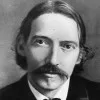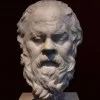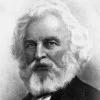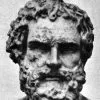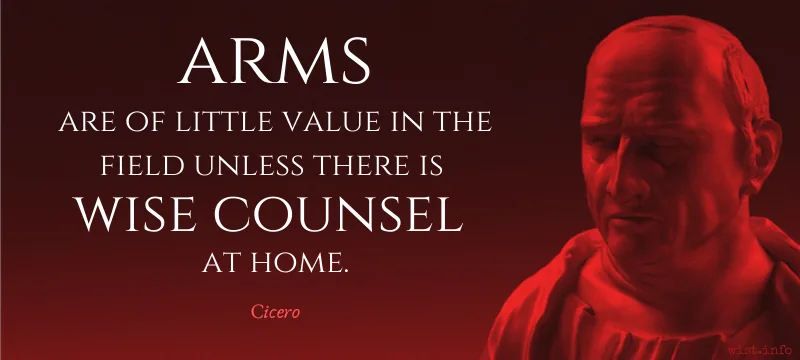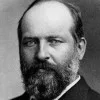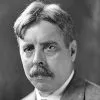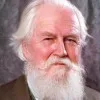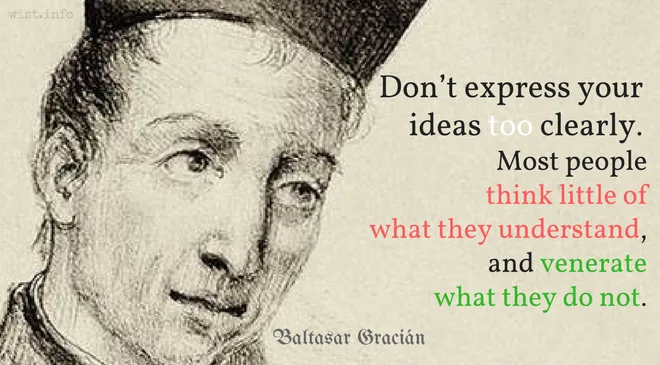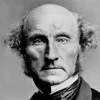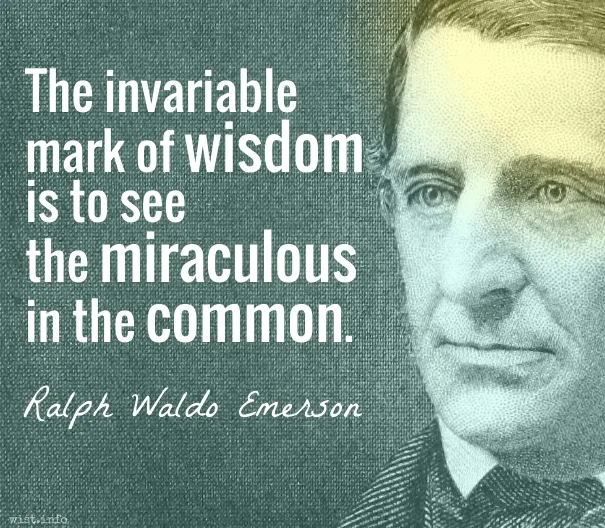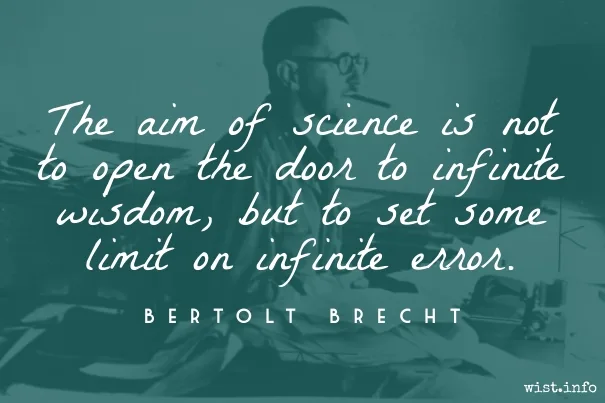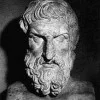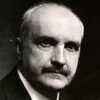It is easy enough to be prudent
When nothing tempts you to stray,
When without or within no voice of sin
Is luring your soul away;
But it’s only a negative virtue
Until it is tried by fire,
And the life that is worth the honour on earth
Is the one that resists desire.Ella Wheeler Wilcox (1850-1919) American author, poet, temperance advocate, spiritualist
Poem (1892), “Worth While,” st. 2, An Erring Woman’s Love
(Source)
Sometimes called "The Man Worth While." Collected again in Poems of Cheer (1910).
Quotations about:
wisdom
Note not all quotations have been tagged, so Search may find additional quotes on this topic.
Radulfus had the wise man’s distant respect for perfection, but no great expectation of meeting it in the way.
Ellis Peters (1913-1995) English writer, translator [pseud. of Edith Mary Pargeter, who also wrote under the names John Redfern, Jolyon Carr, Peter Benedict]
Brother Cadfael’s Penance, ch. 1 (1994)
(Source)
To be honest, to be kind — to earn a little and to spend a little less, to make upon the whole a family happier for his presence, to renounce when that shall be necessary and not be embittered, to keep a few friends, but these without capitulation — above all, on the same grim condition, to keep friends with himself — here is a task for all that a man has of fortitude and delicacy. He has an ambitious soul who would ask more; he has a hopeful spirit who should look in such an enterprise to be successful.
Robert Louis Stevenson (1850-1894) Scottish essayist, novelist, poet
Essay (1888-12), “A Christmas Sermon,” sec. 1, Scribner’s Magazine, Vol. 4
(Source)
Originally written in the winter of 1887-88. Collected in Across the Plains, ch. 12 (1892).
Strength without wisdom falls by its own weight;
The strength that wisdom tempers, the gods increase;
The gods abhor that strength whose heart knows nothing
But what impiety is, and it is punished.[Vis consili expers mole ruit sua,
Vim temperatam di quoque provehunt
In maius; idem odere viris
Omne nefas animo moventis.]Horace (65-8 BC) Roman poet, satirist, soldier, politician [Quintus Horatius Flaccus]
Odes [Carmina], Book 3, # 4, l. 65ff (3.4.65-68) (23 BC) [tr. Ferry (1997)]
(Source)
"To Calliope." (Source (Latin)). Alternate translations:Uncounsil'd force with his own weight
Is crusht; a force that's temperate
Heaven it self helps: and hates no less
Strength that provokes to wickedness.
[tr. Fanshawe; ed. Brome (1666)]Rash force by its own weight must fall,
But Pious strength will still prevail;
For such the Gods assist, and bless,
But hate a mighty Wickedness.
[tr. Creech (1684)]Strength, mindless, falls by its own weight;
Strength, mix'd with mind, is made more strong
By the just gods, who surely hate
The strength whose thoughts are set on wrong.
[tr. Conington (1872)]Force, void of conduct, falls by its own weight; moreover, the gods promote discreet force to further advantage; but the same beings detest forces, that meditate every kind of impiety.
[tr. Smart/Buckley (1853)]Unreasoning strength by its own weight must fall.
To strength with wisdom blent
Force by the gods is lent.
Who hold in scorn that strength, which is on all
That's impious intent.
[tr. Martin (1864)]By its own weight sinks force, when void of counsel.
'Tis the force tempered which the gods make greater;
But they abhor the force
Which gives blind movement to all springs of crime.
[tr. Bulwer-Lytton (1870)]Strength without wisdom falls headlong by its own weight. The Gods increase success to wisely-regulated strength, but abhor the might which contemplates all manner of iniquity.
[tr. Elgood (1893)]Brute might may rush in headlong course,
But tempered strength the gods make strong
And stronger, while they hate the force
That madly stirs to deeds of wrong.
[tr. Gladstone (1894)]Strength void of counsel! By its own weight it falls,
Strength well-directed, even the Gods increase
To greater force, and hate mere brute-power
Planning in mind ev'ry form of evil.
[tr. Phelps (1897)]Force void of counsel falls by its own weight:
But force restrained the very gods bear on
To greater: so they hate the power
That stirreth every disobedience in the mind.
[tr. Garnsey (1907)]For ill-trained strength by its own weight's o'erborne;
But Heaven, to powers well-ordered, favour lends,
Hating brute-force, which to ill ends
Doth all its travail turn.
[tr. Marshall (1908)]Brute force bereft of wisdom falls to ruin by its own weight. Power with counsel tempered, even the gods make greater. But might that in its soul is bent on all impiety, they hate.
[tr. Bennett (Loeb) (1912)]Force lacking counsel falls by its own weight;
Force temperate the Gods make yet more great --
The Gods who hate the strength that would defy
Their righteous will, and plot iniquity.
[tr. Mills (1924)]Primitive force topples to its own ruin,
But when the mind guides power it prospers; heaven
Helps it: the gods abhor
Brute strength devoted to malignant ends.
[tr. Michie (1963)]Force without wisdom falls of its own
Weight. Even the gods require sense of themselves,
And work better for its guidance. They hate
Evil no matter how strong.
[tr. Raffel (1983)]Force alone, devoid of judgment,
sinks beneath its own weight.
But tempered well by the wisdom of the gods,
it rises higher; for the gods detest
all violence which turns to crime.
[tr. Alexander (1999)]Power without wisdom falls by its own weight:
The gods themselves advance temperate power:
and likewise hate force that, with its whole
consciousness, is intent on wickedness.
[tr. Kline (2015)]Force without wisdom rushes from its own weight:
the gods, too, promote tempered force to something
greater; they also hate force
which stirs wickedness in every soul.
[tr. Wikisource (2021)]Force without wisdom falls of its own weight.
[E.g. (1936)]
He that can compose himself, is wiser than he that composes books.
Benjamin Franklin (1706-1790) American statesman, scientist, philosopher, aphorist
Poor Richard (1737 ed.)
(Source)
A wise woman is never passé. She crosses the bridge spanning youth and age with firm step and smiling lips.
Minna Antrim (1861-1950) American epigrammatist, writer
Naked Truth and Veiled Allusions (1902)
(Source)
Do what you love. Know your own bone; gnaw at it, bury it, unearth it, and gnaw it still. Do not be too moral. You may cheat yourself out of much life so. Aim above morality. Be not simply good, be good for something.
Henry David Thoreau (1817-1862) American philosopher and writer
Letter (1848-03-27) to Harrison Blake
(Source)
Collected in F. B. Sanborn, ed., Familiar Letters (1865),
More helpful than all wisdom is one draught of simple human pity that will not forsake us.
George Eliot (1819-1880) English novelist [pseud. of Mary Ann Evans]
The Mill on the Floss, Book 7, ch. 1 (1860)
(Source)
So be wise, because the world needs more wisdom, and if you cannot be wise, pretend to be someone who is wise, and then just behave like they would.
Neil Gaiman (b. 1960) British author, screenwriter, fabulist
Speech (2012-05-17), Commencement, University of the Arts, Philadelphia [19:05]
(Source)
He thinkes not well, that thinkes not againe.
[He thinks not well, that thinks not again.]George Herbert (1593-1633) Welsh priest, orator, poet.
Jacula Prudentum, or Outlandish Proverbs, Sentences, &c. (compiler), # 836 (1640 ed.)
(Source)
CYCLOPS: Little man, the wise regard wealth as the god to worship; all else is just prating and fine-sounding sentiments.
[ΚΥΚΛΩΨ: ὁ πλοῦτος, ἀνθρωπίσκε, τοῖς σοφοῖς θεός,
τὰ δ᾽ ἄλλα κόμποι καὶ λόγων εὐμορφία.]Euripides (485?-406? BC) Greek tragic dramatist
Cyclops [Κύκλωψ], l. 316ff (c. 424-23 BC) [tr. Kovacs (1994)]
(Source)
(Source (Greek)). Alternate translations:POLYPHEME:Vile caitiff,
Wealth is the deity the wise adore,
But all things else are unsubstantial boasts,
And specious words alone.
[tr. Wodhull (1809)]CYCLOPS: Wealth, my good fellow, is the wise man's God, All other things are a pretence and boast.
[tr. Shelley (1824)]CYCLOPS: Wealth, manikin, is the god for the wise; all else is mere vaunting and fine words.
[tr. Coleridge (1913)]CYCLOPS: Wealth, master Shrimp, is to the truly wise
The one true god; the rest are mockeries
Of tall talk, naught but mere word-pageantries.
[tr. Way (1916)]
A foole may throw a stone into a well, which a hundred wise men cannot pull out.
George Herbert (1593-1633) Welsh priest, orator, poet.
Jacula Prudentum, or Outlandish Proverbs, Sentences, &c. (compiler), # 527 (1640 ed.)
(Source)
Sum folks, az they gro older, gro wizer; but most folks simply gro stubbornner.
[Some folks, as they grow older, grow wiser; but most folks simply grow more stubborn.]Josh Billings (1818-1885) American humorist, aphorist [pseud. of Henry Wheeler Shaw]
Everybody’s Friend, Or; Josh Billing’s Encyclopedia and Proverbial Philosophy of Wit and Humor, ch. 148 “Affurisms: Ink Brats” (1874)
(Source)
FASHION, n. A deity whom the wise ridicule, yet the discreet obey.
Ambrose Bierce (1842-1914?) American writer and journalist
“Fashion,” The Cynic’s Word Book (1906)
(Source)
In The Devil's Dictionary (1911), it is defined as: "FASHION, n. A despot whom the wise ridicule and obey."
Originally published in the "Devil's Dictionary" column in the San Francisco Wasp (1884-06-28).
EXPERIENCE, n. The wisdom that enables us to recognize as an undesirable old acquaintance the folly that we have already embraced.
Ambrose Bierce (1842-1914?) American writer and journalist
“Experience,” The Cynic’s Word Book (1906)
(Source)
Included in The Devil's Dictionary (1911). Originally published in the "Devil's Dictionary" column in the San Francisco Wasp (1884-06-07).
If it be true that a man is rich who wants nothing, a wise man is a very rich man.
[S’il est vrai que l’on soit riche de tout ce dont on n’a pas besoin, un homme fort riche, c’est un homme qui est sage.]Jean de La Bruyère (1645-1696) French essayist, moralist
The Characters [Les Caractères], ch. 6 “Of Gifts of Fortune [Des Biens de Fortune],” § 49 (6.49) (1688) [tr. Van Laun (1885)]
(Source)
(Source (French)). Alternate translations:If he is only rich who wants nothing, a very wise Man is a very rich Man.
[Bullord ed. (1696)]If a Man is rich, by all which he does not want, a wise Man is a very rich Man.
[Curll ed. (1713)]If he is rich who wants nothing, a very wise Man is a very rich Man.
[Browne ed. (1752)]If it is true that wealth consists in having few wants, the wise man is a very wealthy man.
[tr. Stewart (1970)]
It is wise to be sure, but otherwise to be too sure.
Sophie Irene Loeb (1876-1929) Ukrainian-American journalist, activist
Epigrams of Eve, “Wise and Otherwise” (1913)
(Source)
ORSINA: Better counsel comes overnight.
[Besserer Rat kommt über Nacht.]Gotthold Lessing (1729-1781) German playwright, philosopher, dramaturg, writer
Emilia Galotti, Act 4, sc. 3 (1772)
It is unclear if this is a traditional German saying, or was coined by Lessing. There are parallels in other languages (as well as German), but I did not find a German reference in these words that predates this play.
(Source (German))Better counsel comes with the night.
[Source (1842)]Morning brings better counsel.
[tr. Lewes/Taylor (1890)]Better counsel often comes by night.
[tr. Gode-von Aesch (1959?)]
Every day I add to the list of things I refuse to discuss. The wiser the man, the longer the list.
[Tous les jours j’accrois la liste des choses dont je ne parle plus. Le plus philosophe est celui dont la liste est la plus longue.]
Nicolas Chamfort (1741-1794) French writer, epigrammist (b. Nicolas-Sébastien Roch)
Products of Perfected Civilization [Produits de la Civilisation Perfectionnée], Part 2 “Characters and Anecdotes [Caractères et Anecdotes],” ch. 7 (1795) [tr. Parmée (2003)]
(Source)
Quoting someone reacting to a request to expound on "various public and private abuses" he had received.
(Source (French)). Alternate translation:Every day I add to the list of things which I will no longer discuss. The more of a philosopher one is, the longer one's list.
[tr. Merwin (1969)]
France was long a “Despotism tempered by Epigrams.”
Thomas Carlyle (1795-1881) Scottish essayist and historian
The French Revolution: A History, Part 1, Book 2, ch. 4 (1.2.4) (1837)
(Source)
Though given in quotation marks, Carlyle is apparently "quoting" himself.
This quotation is commonly given on its own, though, since Carlyle's thesis at this point in his history is that the royal government had largely become irrelevant in the nation, he continues:... and now, it would seem, the Epigrams have got the upper hand.
[Source]
No solitary miscreant, scarcely any solitary maniac, would venture on such actions and imaginations, as large communities of sane men have, in such circumstances, entertained as sound wisdom.
Thomas Carlyle (1795-1881) Scottish essayist and historian
Essay (1829-06), “Signs of the Times,” Edinburgh Review No. 98, Art. 7
(Source)
The great calamity of the passions is not the torments they cause but the wrongs, the base actions that they lead one to commit, and which degrade men. Without these hindrances the advantages of the passions would far outweigh those of cold reason, which renders no one happy. The passions make a man live, wisdom merely makes him last.
[Le grand malheur des passions n’est pas dans les tourmens qu’elles causent, mais dans les fautes, dans les turpitudes qu’elles font commettre, et qui dégradent l’homme. Sans ces inconvéniens, elles auraient trop d’avantage sur la froide raison, qui ne rend point heureux. Les passions font vivre l’homme, la sagesse le fait seulement durer.]
Nicolas Chamfort (1741-1794) French writer, epigrammist (b. Nicolas-Sébastien Roch)
Products of Perfected Civilization [Produits de la Civilisation Perfectionée], Part 1 “Maxims and Thoughts [Maximes et Pensées],” ch. 2, ¶ 118 (1795) [tr. Merwin (1969)]
(Source)
(Source (French)). Alternate translations:The great evil of the passions does not lie in the torments which they bring upon men, but in the faults and shameful actions they cause him to commit. Were it not for this drawback they would have too great an advantage over cold reason, which can never be productive of happiness. His passions make man live, his wisdom only makes him last.
[tr. Mathers (1926)]The unfortunate thing about passions is not the misery they make one commit, and which degrade man. Without these disadvantages, they would overpower cold reason, which does not in the least a source of happiness. Passions make men live, wisdom only makes the endure.
[tr. Pearson (1973)]The great disaster of passions is not the torment they cause, but the debasing errors and depravity into which they lead men. Without these drawbacks, passion would enjoy many advantages over cold reason, which never produces happiness. Passions enable men to live, wisdom merely enables them to survive.
[tr. Dusinberre (1992)]The great misfortune of passions does not come from the torments that they cause, but from the base things they make a person do, and which degrade him. Without these inconveniences, they would have too many advantages over cold reason, which never makes people happy. Passions make a man live, wisdom and facts only make him endure.
[tr. Siniscalchi (1994)]
I hope you will have a wonderful year, that you’ll dream dangerously and outrageously, that you’ll make something that didn’t exist before you made it, that you will be loved and that you will be liked, and that you will have people to love and to like in return. And, most importantly (because I think there should be more kindness and more wisdom in the world right now), that you will, when you need to be, be wise, and that you will always be kind.
Neil Gaiman (b. 1960) British author, screenwriter, fabulist
Blog entry (2008-12-31), “Another Year”
(Source)
A wise man neither lets himself be governed nor seeks to govern others: he wishes reason alone to govern, and for ever.
[Un homme sage ni ne se laisse gouverner, ni ne cherche à gouverner les autres: il veut que la raison gouverne seule et toujours.]
Jean de La Bruyère (1645-1696) French essayist, moralist
The Characters [Les Caractères], ch. 4 “Of the Heart [Du Coeur],” § 71 (4.71) (1688) [tr. Stewart (1970)]
(Source)
(Source (French)). Alternate translations:A Wise Man neither suffers himself to be govern'd, nor attempts to govern others. 'Tis his reason alone which always governs him.
[Bullord ed. (1696)]A Wise Man neither suffers himself to be govern'd, nor attempts to govern others. He wou'd have Reason alone always to govern him.
[Curll ed. (1713)]An intelligent man neither allows himself to be controlled nor attempts to control others; he wishes reason alone to rule, and that always.
[tr. Van Laun (1885)]
Education makes a greater difference between man and man, than nature has made between man and brute. The virtues and powers to which men may be trained, by early education and constant discipline, are truly sublime and astonishing. Newton and Locke are examples of the deep sagacity which may be acquired by long habits of thinking and study.
John Adams (1735-1826) American lawyer, Founding Father, statesman, US President (1797-1801)
Letter to Abigail Adams (1775-10-29)
(Source)
It is by the goodness of God that in our country we have those three unspeakably precious things: freedom of speech, freedom of conscience, and the prudence never to exercise either of them.
Mark Twain (1835-1910) American writer [pseud. of Samuel Clemens]
Following the Equator, ch. 20, Epigraph (1897)
(Source)
Cited as from Pudd'nhead Wilson's New Calendar. Sometimes misquoted "... never to practice either."
What wouldest thou have me follow? what my enemies think prudent, or what I myself think to be so?
[Que veux-tu que je suive, la prudence de mes ennemis, ou la mienne?]
Charles-Lewis de Secondat, Baron de Montesquieu (1689-1755) French political philosopher
Persian Letters [Lettres Persanes], Letter 8, Usbek to Rustan (1721) [tr. Floyd (1762)]
(Source)
(Source (French)). Alternate translations:What wouldst thou have me pursue; the Prudence of my Enemies, or my own?
[tr. Ozell (1736)]Which would you have me obey -- the petty maxims that guide my enemies, or the dictates of my own free soul?
[tr. Davidson (1891)]Which would you have me accept as a guide, -- the foresight of my enemies or my own?
[tr.https://archive.org/details/persianletters00degoog/page/n52/mode/2up?q=%22accept+as+a+guide%22">Betts (1897)]Would you have me follow my own counsel or that of my enemies?
[tr. Healy (1964)]Ought I to heed my enemies' prudent counsels or my own?
[tr. Mauldon (2008)]Which would you have me follow, Rustan, my own counsel, or that of my enemies?
[tr. MacKenzie (2014)]
Thou art an heyre to fayre lyving, that is nothing, if thou be disherited of learning, for better were it to thee to inherite righteousnesse then riches, and far more seemely were it for thee to have thy Studie full of bookes, then thy pursse full of mony: to get goods is the benefit of Fortune, to keepe them the gift of Wisedome.
[Thou art an heir to fair living; that is nothing if thou be disinherited of learning, for better were it to thee to inherit righteousness than riches and far more seemly were it for thee to have thy study full of books than thy purse full of money. To get goods is the benefit of fortune, to keep them the gift of wisdom. (1916 ed.)]John Lyly (c. 1553-1606) was an English writer [also Lilly or Lylie]
Euphues: The Anatomy of Wit, “Letter to Alcius” (1579)
(Source)
It is the certainty that they possess the truth that makes men cruel.
[C’est la certitude qu’ils tiennent la vérité qui rend les hommes cruels.]
Anatole France (1844-1924) French poet, journalist, novelist, Nobel Laureate [pseud. of Jaques-Anatole-François Thibault]
(Misquotation)
Widely attributed (in French and English) to Anatole France, but not found in his works, including the one location it is sometimes cited from, Les Dieux Ont Soif [The Gods Are Thirsty, The Gods Are Athirst, The Gods Will Have Blood] (1912), in either English translation or, more importantly, in the original French.
While thematically keeping in the novel's depiction of the French Revolution and the Terror, the closest match to the quote I can find is this portion of ch. 22, talking about the expediting of the trials of those charged with counter-revolutionary crimes, eliminating the need to prove a misdeed by simply inquiring as to the accused's beliefs.Justice thus abbreviated satisfied them; the pace was quickened, and no obstacles were left to fret them. They limited themselves to an inquiry into the opinions of the accused, not conceiving it possible that anyone could think differently from themselves except in pure perversity. Believing themselves the exclusive possessors of truth, wisdom, the quintessence of good, they attributed to their opponents noting but error and evil. They felt themselves all-powerful; they envisaged God.
[tr. Allinson (1913), Jackson (1921)]Justice, thus curtailed, satisfied them; the pace was quickened and no obstacles were left to confuse them. They confined themselves to inquiring into the opinions of the accused, not conceiving it possible that anyone, except from pure perversity, could think differently from themselves. Believing themselves to possess a monopoly of truth, wisdom and goodness, they attributed to their opponents all error, stupidity and evil. They felt themselves omnipotent: their eyes had seen God.
[tr. Davies (1979)]La justice abrégée les contentait. Rien, dans sa marche accélérée, ne les troublait plus. Ils s’enquéraient seulement des opinions des accusés, ne concevant pas qu’on pût sans méchanceté penser autrement qu’eux. Comme ils croyaient posséder la vérité, la sagesse, le souverain bien, ils attribuaient à leurs adversaires l’erreur et le mal. Ils se sentaient forts : ils voyaient Dieu.
[Original]
Thy Godlike crime was to be kind,
To render with thy precepts less
The sum of human wretchedness,
And strengthen Man with his own mind.
When the whole world is running towards a cliff, he who is running in the opposite direction appears to have lost his mind.
Tell us, where slopes the cliff, to make a way
That man may climb? For they who know its worth
Fret most when time is wasted in delay.[Ditene dove la montagna giace,
sì che possibil sia l’andare in suso;
ché perder tempo a chi più sa più spiace.]Dante Alighieri (1265-1321) Italian poet
The Divine Comedy [Divina Commedia], Book 2 “Purgatorio,” Canto 3, l. 76ff (3.76-78) (1314) [tr. Sayers (1955)]
(Source)
Virgil inquiring of the "Contumacious" (the rebellious and excommunicates who only sought the forgiveness of God at the end of their lives) the best route to climb the Mountain of Purgatory. He actually gets in a dig at them, as they are themselves delayed ascending the Mountain because of their delayed turn to Salvation.
(Source (Italian)). Alternate translations:Shew, where with easier slope these mountains bend,
The MENTAL PROGRESS ill can bear a stand.
[tr. Boyd (1802), st. 15]Instruct us where the mountain low declines,
So that attempt to mount it be not vain.
For who knows most, him loss of time most grieves.
[tr. Cary (1814)]Tell us in what direction mountain lies --
If it be possible to climb its side?
Lost time the wisest find it worst to bide.
[tr. Bannerman (1850)]Tell us upon what side the mountain slopes,
So that the going up be possible,
For to lose time irks him most who most knows.
[tr. Longfellow (1867)]Tell us where the mountain falls, so that it is possible to go upward; for loss of time displeases most who most knows.
[tr. Butler (1885)]Tell us where easiest slopes the precipice.
So that we there our upward path may hold:
Him who knows most time lost doth most displease.
[tr. Minchin (1885)]Tell us, where the mountain lies so that the going up is possible; for to lose time is most displeasing to him who knows most.
[tr. Norton (1892)]Tell us where the mountain slopes, so that it may be possible to go upward; for time lost irks him who knowest most.
[tr. Okey (1901)]Tell us where the mountain slopes so that it is possible to go up; for loss of time most grieves him that knows best.
[tr. Sinclair (1939)]Tell us where slopes the mountain by degrees
Such, that it may be possible to ascend;
For him who knows most lost hours most displease.
[tr. Binyon (1943)]Tell us which way
leads to some slope by which we two may climb.
Who best knows time is most grieved by delay.
[tr. Ciardi (1961)]Tell us where the mountain slopes so that it is possible to go up, for time lost irks him most who knows most.
[tr. Singleton (1973)]Tell us where the mountain slopes enough
for us to start our climb: the more one learns,
the more one comes to hate the waste of time.
[tr. Musa (1981)]Tell us where the mountain-side slopes so
That it is possible to go up higher;
For those who know most, dislike most to dawdle.
[tr. Sisson (1981)]Please tell
us where the slope inclines and can be climbed;
for he who best discerns the worth of time
is most distressed whenever time is lost.
[tr. Mandelbaum (1982)]Tell us where the mountain slopes so that it is possible to climb it; for losing time displeases most those who know most.
[tr. Durling (2003)]Tell us where the mountain slopes allow us to go upwards, since lost time troubles those most, who know most.
[tr. Kline (2002)]Please tell us where the mountain angles down
to make it possible for us to climb.
For those who know the most, most hate time lost.
[tr. Kirkpatrick (2007)]Tell us where the mountain rises gently
so that we may begin the long ascent.
The more we know, the more we hate time's waste.
[tr. Hollander/Hollander (2007)]Tell us where they bend, these mountain slopes,
So feet may find their way. A man of knowledge
Regrets the loss of time far more than most.
[tr. Raffel (2010)]
The wise man preserves a smooth-tempered self-control.
[πρὸς σοφοῦ γὰρ ἀνδρὸς ἀσκεῖν σώφρον᾽ εὐοργησίαν.]
Euripides (485?-406? BC) Greek tragic dramatist
Bacchæ [Βάκχαι], l. 641ff [Dionysus/Διόνυσος] (405 BC) [tr. Vellacott (1973)]
(Source)
An ironic statement from Dionysus, of how he will keep his calm and temper in the face of Pentheus' disrespectful fury. In very short order, Dionysus is (calmly) setting up Pentheus' self-destruction through the Bacchantes' frenzy.
(Source (Greek)). Alternate translations:For it behoves the wise
To curb the sallies of outrageous ire.
[tr. Wodhull (1809)]For it is the part of a wise man to practice restrained good temper.
[tr. Buckley (1850)]’Tis easy to a wise man To practise self-command.
[tr. Milman (1865)]For a wise man ever knoweth how to keep his passion down.
[tr. Rogers (1872)]For ’tis a wise man’s way to school his temper into due control.
[tr. Coleridge (1891)]For it is the wise man's part to rein his wrath in soberness.
[tr. Way (1898)]For still are the ways of Wisdom, and her temper trembleth not!
[tr. Murray (1902)]Wise men know constraint: our passions are controlled.
[tr. Arrowsmith (1960)]For it is the quality of a wise man to exercise restrained good temper.
[tr. Kirk (1970)]The secret of life is
Balance, tolerance.
[tr. Soyinka (1973)]A wise man should practice pure thought and good temper.
[tr. Neuburg (1988)]A wise man knows restraint. His strength is his detachment.
[tr. Cacoyannis (1982)]For the wise know gentleness is wisdom.
[tr. Blessington (1993)]For it is the part of a wise man to employ a controlled and gentle temper.
[tr. Esposito (1998)]A wise man trains his temper to be good and calm.
[tr. Woodruff (1999)]Because a man
Who is wise has self-control and gentleness of temper.
[tr. Gibbons/Segal (2000)]It is a wise man's part to practice gentleness and self-control.
[tr. Kovacs (2002)]He who would be wise will keep his self-control.
[tr. Teevan (2002)]That is how wise people work, calmly.
[tr. Theodoridis (2005)]A wise man is able to hold his good-nature well tempered.
[tr. Valerie (2005)]After all, a wise man ought to keep his temper.
[tr. Johnston (2008)]He should learn from me the ways of self-control.
[tr. Robertson (2014)]Keep calm and carry on, as the wisest say.
[tr. Pauly (2019)]The wise man has a reasonable temper.
[tr. Behr/Foster (2019)]A sophos man must practice good temper that is moderate [sōphrōn].
[tr. Buckley/Sens/Nagy (2020)]
More undertakings fail for want of spirit than for want of sense. Confidence gives a fool the advantage over a wise man.
You write two hundred lines a day, but don’t recite.
Varus, you are wise, if none too bright.[Cum facias versus nulla non luce ducenos,
Vare, nihil recitas. Non sapis, atque sapis.]Martial (AD c.39-c.103) Spanish Roman poet, satirist, epigrammatist [Marcus Valerius Martialis]
Epigrams [Epigrammata], Book 8, epigram 20 (8.20) (AD 94) [tr. McLean (2014)]
(Source)
"To Varus." See also 2.88.
(Source (Latin)). Alternate translations:Each day you make two hundred verses, sott,
But none recite: you're wise, and you are nott.
[16th C Manuscript]You make two hundred verses in a trice;
But publish none: -- The man is mad and wise.
[tr. Hay (1755)]You countless verses pen, each morn you rise;
Yet none recite: how witty, and how wise!
[tr. Elphinston (1782), Book 12, ep. 8]Though you write two hundred verses every day, Varus, you recite nothing in public. You are unwise, and yet you are wise.
[tr. Bohn's Classical (1859)]Varus writes facile verse and keeps it mum.
He's weakly garrulous, and wisely dumb.
[tr. Street (1907)]Every day Varus writes
Scores of verses, I've heard:
But he never recites.
He's both wise and absurd.
[tr. Nixon (1911), "The Wisest Fool"]Although no day passes but you compose two hundred verses, Varus, you recite none of them. You have no wit -- and yet are wise.
[tr. Ker (1919)]You write a hundred lines a day?
That means a crazy brain.
And yet you publish none, you say;
That shows that you are sane.
[tr. Pott & Wright (1921), "The Wise Fool"]Varus, two hundred lines each day that flies
You write and burn. How foolish -- and how wise!
[tr. Francis & Tatum (1924), ep. 401]Although you write two hundred lines
Of poetry each day,
You shun our constant plea to let us
Hear your poetry.
Two hundred verses every day,
And I, with luck, one line!
You can't be good, though very good
Of you, sir, to decline!
[tr. Marcellino (1968)]Although you make two hundred verses every day, Varus, you never recite. You are a fool, and you are no fool.
[tr. Shackleton Bailey (1993)]He turns out verses by the ton,
But never publishes a one.
He is too dumb to be a poet,
But wise enough in fact to know it.
[tr. Wills (2007)]Though Varus daily sits and writes --
Two hundred lines! -- he neither tries
To publish verses nor recites.
He's not too witty, but he's wise.
[tr. Barth]
On the subject of Biblical texts and examples to why you can’t do certain things with your body that you wish to, I find that absolutely absurd. I’ve always been extremely uncomfortable with the idea in any society that belief is based on revealed truth, that’s to say on a text like a Bible or a Qur’an, or whatever it is. It seems to me that the greatness of our culture, for all its incredible faults, is that we have grown up on the Greek ideal of discovering the truth, discovering by looking around us, by empirical experiment, by the combination of the experience of generations of ancestors who have contributed to our sum knowledge of the way the world works, and so on. And to have that snatched away and to be told what to think by a book, however great it may be in places, this is a book that says you can sell your daughter into slavery, it’s a book that bans menstruating women from within miles of temples. The fact that it also says that for one man to lie with another man is an abomination, is no more made relevant or important than the fact that you can’t eat shellfish.
Stephen Fry (b. 1957) British actor, writer, comedian
An Evening with Callow & Fry, Norwich (2003-12)
(Source)
Consider what you came from: you are Greeks!
You were not born to live like mindless brutes
but to follow paths of excellence and knowledge.[Considerate la vostra semenza:
fatti non foste a viver come bruti,
ma per seguir virtute e canoscenza.]Dante Alighieri (1265-1321) Italian poet
The Divine Comedy [Divina Commedia], Book 1 “Inferno,” Canto 26, l. 118ff (26.118-120) [Ulysses] (1309) [tr. Musa (1971)]
(Source)
Speaking to his sailors on their final voyage, urging them to explore the unknown.
(Source (Italian)). Alternate translations:On your original reflect, nor think
That you were, made, like Brutes, to only live,
But knowledge and to virtuous acts pursue.
[tr. Rogers (1782)]Recall your glorious toils, your lofty birth.
Nor like the grov'ling herds, ally'd to earth.
No base despondence quit your lofty claim.
[tr. Boyd (1802), st. 19]Call to mind from whence we sprang:
Ye were not form’d to live the life of brutes
But virtue to pursue and knowledge high.
[tr. Cary (1814)]Bethink you of your birth-rank and its dues:
Ye were not thus for brutish life endued.
But Virtue's path and Learning's born to chuse.
[tr. Dayman (1843)]Consider your origin: ye were not formed to live like brutes, but to follow virtue and knowledge.
[tr. Carlyle (1849)]Consider, then, the birth from whence you sprung:
You were not made, like brutes, to live and die:
The path of virtue and of knowledge try.
[tr. Bannerman (1850)]Consider well the seed from whence you sprung;
You were not made to live as live the beasts,
But to seek virtue and true knowledge grasp.
[tr. Johnston (1867)]Consider ye the seed from which ye sprang;
Ye were not made to live like unto brutes,
But for pursuit of virtue and of knowledge.
[tr. Longfellow (1867)]Consider your begetting; ye were not made to live as brutes, but to follow virtue and knowledge.
[tr. Butler (1885)]Over your noble birthright ye should muse;
To live like senseless brutes ye were not made,
But knowledge to pursue and virtue use.
[tr. Minchin (1885)]Consider ye your origin; ye were not made to live as brutes, but for pursuit of virtue and of knowledge.
[tr. Norton (1892)]Bethink you of your birth: ye were not made to live the life of brutes, but to obey the call of valour and of knowledge.
[tr. Sullivan (1893)]Consider ye the seed that ye are sprung from:
Ye were not made to live as the brute creatures,
But that ye virtue might pursue and knowledge.
[tr. Griffith (1908)]Take thought of the seed from which you spring. You were not born to live as brutes, but to follow virtue and knowledge.
[tr. Sinclair (1939)]Think on the seed ye spring from! Ye were made
Not to live life of brute beasts of the field
But follow virtue and knowledge unafraid.
[tr. Binyon (1943)]Think of your breed; for brutish ignorance
Your mettle was not made; you were made men.
To follow after knowledge and excellence.
[tr. Sayers (1949)]Greeks! You were not born to live like brutes,
but to press on toward manhood and recognition!
[tr. Ciardi (1954), l. 110]Consider your origin: you were not made to live as brutes, but to pursue virtue and knowledge.
[tr. Singleton (1970)]Consider well the seed that gave you birth:
you were not made to live your lives as brutes,
but to be followers of worth and knowledge.
[tr. Mandelbaum (1980)]Consider then the race from which you have sprung:
You were not made to live like animals,
But to pursue virtue and know the world.
[tr. Sisson (1981)]Consider well your seed:
You were not born to live as a mere brute does,
But for the pursuit of knowledge and the good.
[tr. Pinsky (1994)]Consider your sowing: you were not made to live like brutes, but to follow virtue and knowledge.
[tr. Durling (1996)]Consider your origin: you were not made to live like brutes, but to follow virtue and knowledge.
[tr. Kline (2002)]Hold clear in thought your seed and origin.
You were not made to live as mindless brutes,
but go in search of virtue and true knowledge.
[tr. Kirkpatrick (2006)]Consider how your souls were sown:
you were not made to live like brutes or beasts,
but to pursue virtue and knowledge.
[tr. Hollander/Hollander (2007)]Think of your origins, the people you come from:
You were not made to live like wild-toothed beasts,
But for the pursuit of virtue and honest knowledge.
[tr. Raffel (2010)]Remember now your pedigree.
You were not born to live as brutes. Virtue
And knowledge are your guiding lights.
[tr. James (2013)]
“Let your conscience be your guide” is a silly thing to say to a good man, or a bad one.
Mignon McLaughlin (1913-1983) American journalist and author
The Second Neurotic’s Notebook, ch. 5 (1966)
(Source)
Temperance.
Temperance and honoring the gods. It’s the best we can do.
The smartest thing mortals can choose to do.[τὸ σωφρονεῖν δὲ καὶ σέβειν τὰ τῶν θεῶν
κάλλιστον: οἶμαι δ᾽ αὐτὸ καὶ σοφώτατον
θνητοῖσιν εἶναι κτῆμα τοῖσι χρωμένοις.]Euripides (485?-406? BC) Greek tragic dramatist
Bacchæ [Βάκχαι], l. 1150ff [Messenger/Ἄγγελος] (405 BC) [tr. Pauly (2019)]
(Source)
After recounting the brutal murder and dismemberment of Pentheus by the Bacchantes in punishment of his disrespect to Dionysus.
(Source (Greek)). Alternate translations:For modest worth, and reverence for the Gods,
Are, in my judgement, the most certain marks
Of glory and of wisdom in mankind.
[tr. Wodhull (1809)]Soundness of mind and reverence for the affairs of the gods is best; and this, I think, is the wisest possession for those mortals who adopt it.
[tr. Buckley (1850)]Oh! to be reverent, to adore the gods,
This is the noblest, wisest course of man,
Taking dread warning from this dire event.
[tr. Milman (1865)]For soberness and reverence for the gods
I deem the wisest and the best of things
To all such men as learn this lesson well.
[tr. Rogers (1872)]To my mind self-restraint and reverence for the things of God point alike the best and wisest course for all mortals who pursue them.
[tr. Coleridge (1891)]Ay, self-restraint, and reverence for the Gods
Are best, I ween; 'tis wisest far for men
To get these in possession, and cleave thereto.
[tr. Way (1898)]Oh, to fulfil
God's laws, and have no thought beyond His will,
Is man's best treasure. Aye, and wisdom true,
Methinks, for things of dust to cleave unto!
[tr. Murray (1902)]Humility,
a sense of reverence before the sons of heaven --
of all the prizes that a mortal man might win,
these, I say, are wisest; these are best.
[tr. Arrowsmith (1960)]To be of sound mind and reverence the things divine
is finest -- and I think it is also the wisest
practice for mortal men to follow.
[tr. Kirk (1970)]The noblest thing a man can have is a humble and quiet heart that reveres the gods. I think that is also the wisest thing for a man to possess, if he will be use it.
[tr. Vellacott (1973)]Pure thought, and reverence for what is god’s --
this is the fairest and, I think, the wisest
possession mortals can employ.
[tr. Neuburg (1988)]I am but a simple man, yet to me
reverence and humility before the Gods
is best for all men. It is also the only wisdom.
If only men would use it. So I think.
[tr. Cacoyannis (1982)]To be moderate and honor godly things
Is best. I think it the wisest possession
For mortal men, if they use it well.
[tr. Blessington (1993)]Moderation and reverence for things divine,
this is the best course. And it is also, I think,
the wisest possession for those mortals who use it.
[tr. Esposito (1998)]But this is the highest glory: have a sound mind and reverence for
whatever belongs to the gods. This too is the most wise
of all pursuits a human being can follow.
[tr. Woodruff (1999)]Wise moderation and a reverence
For what is of the gods -- this is what’s best.
And this, I think, of all possessions owned
By mortals, is the wisest one to use.
[tr. Gibbons/Segal (2000)]The best thing of all is to practice moderation and worship the gods. That is also, I think, the wisest possession a mortal can make use of.
[tr. Kovacs (2002)]The greatest wisdom is humility,
It is the greatest gift the gods give us;
Most wise the man who uses it.
[tr. Teevan (2002)]Wisdom and respect for the gods is a great virtue and a possession most worthy for the mortals to have.
[tr. Theodoridis (2005)]For having a mind that respects the affairs of divine ones
is the most beautiful thing on earth, and I think
it is the wisest thing someone could do.
[tr. Valerie (2005)]The best thing is to keep one's mind controlled,
and worship all that comes down from the gods.
That, in my view, is the wisest custom,
for those who can conduct their lives that way.
[tr. Johnston (2008), l. 1428ff]This is another lesson:
that moderation and reverence for the gods
are a mortal's best possession.
[tr. Robertson (2014), l. 1149ff]For I believe
that our most beautiful possessions are sanity and a love of the gods.
The wise are those who use wisdom.
[tr. Behr/Foster (2019)]Balance [sōphroneîn] and reverence for the affairs of the gods is best. I think this is the most sophon possession for mortals’ use.
[tr. Buckley/Sens/Nagy (2020)]Humility, a sense of reverence before the sons of heaven --
of all the prizes that a mortal man might win
these, I say, are wisest; these are best.
[Bartlett's]
To understand the actual world as it is, not as we should wish it to be, is the beginning of wisdom.
Bertrand Russell (1872-1970) English mathematician and philosopher
“Censorship by Progressives,” New York American (1934-10-11)
(Source)
The beginning of wisdom is the definition of terms.
[Η αρχή της σοφίας είναι ο καθορισμός των όρων]
Socrates (c.470-399 BC) Greek philosopher
(Paraphrase)
Frequently attributed to Socrates (or, our source for most Socratic material, Plato), but not found as such in their works.
That said, there are places where Socrates indicates that searching out the meanings of ambiguities is important, and his "Socratic method" often involves calling definitions (or their implications) into question.
For example, in Phaedrus, 256d [tr. Jowett (1892)], Plato has Socrates note:First, the comprehension of scattered particulars in one idea; as in our definition of love, which whether true or false certainly gave clearness and consistency to the discourse, the speaker should define his several notions and so make his meaning clear.
[εἰς μίαν τε ἰδέαν συνορῶντα ἄγειν τὰ πολλαχῇ διεσπαρμένα, ἵνα ἕκαστον ὁριζόμενος δῆλον ποιῇ περὶ οὗ ἂν ἀεὶ διδάσκειν ἐθέλῃ. ὥσπερ τὰ νυνδὴ περὶ Ἔρωτος -- ὃ ἔστιν ὁρισθέν -- εἴτ᾽ εὖ εἴτε κακῶς ἐλέχθη, τὸ γοῦν σαφὲς καὶ τὸ αὐτὸ αὑτῷ ὁμολογούμενον διὰ ταῦτα ἔσχεν εἰπεῖν ὁ λόγος.]
Possibly from this sentiment, Socrates' student Antisthenes said the very similar to the subject quotation, As recorded in Arrianus, The Discourses of Epictetus [Epictetus Diatibai], Book 1, ch. 17 [tr. Long (1877)]:The beginning of education is the examination of terms.
[ἀρχὴ παιδεύσεως ἡ τῶν ὀνομάτων ἐπίσκεψις]
Arrianus was a student of Epictetus, who had been a pupil of Antisthenes. In the full passage, Epictetus ties this phrase back to Antisthenes and Socrates, possibly establishing the phrasing as a something directly said by Socrates.
More discussion of this quotation:
The supposed wisdom of proverbs is mainly imaginary. As a rule, proverbs go in pairs which say opposite things. The opposite of “More haste, less speed” is “A stitch in time saves nine.” The opposite of “Take care of the pence and the pounds will take care of themselves,” “Penny wise, pound foolish.” The opposite of “Two heads are better than one,” is “Too many cooks spoil the broth.” And so on. The great advantage of a proverb in argument is that it is supposed to be incontrovertible, as embodying the quintessential sagacity of our ancestors. But when once you have realised that proverbs go in pairs which say opposite things you can never again be downed by a proverb; you merely quote the opposite.
Bertrand Russell (1872-1970) English mathematician and philosopher
“On Proverbs,” New York American (1932-11-16)
(Source)
There are three things all wise men fear: the sea in storm, a night with no moon, and the anger of a gentle man.
Patrick Rothfuss (b. 1973) American author
The Name of the Wind, ch. 43 “The Flickering Way” (2007)
(Source)
Talk sense to a fool
and he calls you foolish.[δόξει τις ἀμαθεῖ σοφὰ λέγων οὐκ εὖ φρονεῖν.]
Euripides (485?-406? BC) Greek tragic dramatist
Bacchæ [Βάκχαι], l. 480 [Dionysus/Διόνυσος] (405 BC) [tr. Arrowsmith (1960)]
(Source)
Replying to Pentheus' charge that he's being foolishly evasive.
(Source (Greek)). Alternate translations:He must seem devoid
Of reason, who mysterious truths unfolds
To those who lack discretion.
tr. Wodhull (1809)]One will seem to be foolish if he speaks wisely to an ignorant man.
[tr. Buckley (1850)]Who wiseliest speaks, to the fool speaks foolishness.
[tr. Milman (1865)]Boors think a wise man’s words devoid of sense.
[tr. Rogers (1872), l. 457]He were a fool, methinks, who would utter wisdom to a fool.
[tr. Coleridge (1891)]Wise answers seem but folly to a fool.
[tr. Way (1898)]Wise words being brought
To blinded eyes will seem as things of nought.
[tr. Murray (1902)]He who talks wisdom to an ignorant man will seem out of his senses.
[tr. Kirk (1970)]A wise speech sleeps in a foolish ear.
[tr. Vellacott (1973)]Talk truth to a deaf man and he
Begs your pardon.
[tr. Soyinka (1973)]Wise speech seems thoughtless to the ignorant.
[tr. Neuburg (1988)]What makes no sense is talking sense to a fool.
[tr. Cacoyannis (1982)]To the ignorant, wisdom will seem folly.
[tr. Blessington (1993)]To the ignorant man, any speaker of wisdom will seem foolish.
[tr. Esposito (1998)]Speak wisdom to a fool and he'll think you have no sense at all.
[tr. Woodruff (1999)]Wise things to the ignorant will sound like nonsense.
[tr. Gibbons/Segal (2000)]Speak wisdom to a fool and he will think you foolish.
[tr. Kovacs (2002)]Wise words spoken in the ear of a fool turn into nothingness.
[tr. Rao/Wolf (2004)]It is not wise for someone to say anything wise to the ignorant.
[tr. Theodoridis (2005)]Wise words will appear foolishness -- to an idiot.
[tr. Valerie (2005)]Yes, but, then,
a man can seem really ignorant
when speaking to a fool.
[tr. Johnston (2008)]Sense is nonsense to a fool.
[tr. Robertson (2014)]Wisdom always sounds silly to the unwise.
[tr. Pauly (2019)]Only a fool takes a warning for an insult.
[tr. Behr/Foster (2019)]One will seem to be foolish if he speaks wise things [sopha] to a senseless man.
[tr. Buckley/Sens/Nagy (2020)]
There are no exact directions. There are probably no directions at all. The only things that I am able to recommend at this moment are: a sense of humour; an ability to see the ridiculous and the absurd dimensions of things; an ability to laugh about others as well as about ourselves; a sense of irony; and, of everything that invites parody in this world. In other words: rising above things, or looking at them from a distance; sensibility to the hidden presence of all the more dangerous types of conceit in others, as well as in ourselves; good cheer; an unostentatious certainty of the meaning of things; gratitude for the gift of life and courage to assume responsibility for it; and, a vigilant mind.
Václav Havel (1936-2011) Czech playwright, essayist, dissident, politician
Speech, accepting the “Open Society” Prize, Central European University (24 Jun 1999)
(Source)
We alone are right-minded; everyone else is wrong.
[μόνοι γὰρ εὖ φρονοῦμεν, οἱ δ᾽ ἄλλοι κακῶς.]
Euripides (485?-406? BC) Greek tragic dramatist
Bacchæ [Βάκχαι], l. 196 [Teiresias/Τειρεσίας] (405 BC) [tr. Robinson (2014)]
(Source)
When asked by Cadmus about being the only men of Thebes attending the Bacchanal. (Source (Greek)). Alternate translation:Because ourselves alone
Are truly wise, but others judge amiss.
[tr. Wodhull (1809)]Yes, for we alone think rightly, the rest wrongly.
[tr. Buckley (1850)]All else misjudge; we only are the wise.
[tr. Milman (1865)]Alone: For we are wise, the rest are fools.
[tr. Rogers (1872), l. 179]Yea, for we alone are wise, the rest are mad.
[tr. Coleridge (1891)]Yea, we alone are wise; the rest be fools.
[tr. Way (1898)]Aye, Thebes is blinded. Thou and I can see.
[tr. Murray (1902)]They are all blind.
Only we can see.
[tr. Arrowsmith (1960)]Yes, for only we are sane -- the rest are mad.
[tr. Kirk (1970)]We are the only men right-minded; the rest are perverse.
[tr. Vellacott (1973)]We alone think well, the others ill.
[tr. Neuburg (1988)]The only ones with healthy minds. The rest are sick.
[tr. Cacoyannis (1982)]Only we think right. The others vilely.
[tr. Blessington (1993)]Yes, since only we reason well. The rest are fools!
[tr. Esposito (1998)]The only ones in our right minds. The rest are mad.
[tr. Woodruff (1999)]Yes, only we have any sense, the rest have none.
[tr. Gibbons/Segal (2000)]Yes, we alone have sense, the others none.
[tr. Kovacs (2002)]Yes, Kadmos because we are the only ones who can think straight. The rest of them? They are all wrong!
[tr. Theodoridis (2005)]We alone've got it right; the others, wrongly.
[tr. Valerie (2005)]Yes, indeed,
for we're the only ones whose minds are clear.
As for the others, well, their thinking's wrong.
[tr. Johnston (2008), l. 247ff]The rest are blind. Only we can see.
[tr. Robertson (2014)]We’re the only ones wise enough. The rest ... less so.
[tr. Pauly (2019)]Of course; no one else has enough sense.
[tr. Behr/Foster (2019)]We alone are sensible, all the others foolish.
[tr. Buckley/Sens/Nagy (2020)]
Cleverness is not wisdom,
nor is thinking thoughts that are not mortal.
Life is short; this being so,
who would pursue great things
and not bear with what is at hand? These
are the ways of madmen and
men of evil counsel, at least
in my judgment.[τὸ σοφὸν δ’ οὐ σοφία,
τό τε μὴ θνατὰ φρονεῖν
βραχὺς αἰών· ἐπὶ τούτωι
δὲ τίς ἂν μεγάλα διώκων
τὰ παρόντ’ οὐχὶ φέροι; μαι
νομένων οἵδε τρόποι καὶ
κακοβούλων παρ’ ἔμοιγε φωτῶν.]Euripides (485?-406? BC) Greek tragic dramatist
Bacchæ [Βάκχαι], l. 395ff (Stasimon 1, Antiphon/Antistrophe 1) [Chorus/Χορός] (405 BC) [tr. Kirk (1970)]
(Source)
The chorus of Bacchantes is playing with the similarly-rooted sophon (cleverness) and sophia (wisdom). (Source (Greek)). Alternate translation:That science which beyond the scope
Of frail humanity aspires.
Haunts not the bosom of the Sage.
Short is life, and they who follow
Ambition's splendid treacherous lure
Taste not the blessings of the present hour:
I deem their conduct frantic and unwise.
[tr. Wodhull (1809)]But cleverness is not wisdom, nor is thinking on things unfit for mortals. Life is short, and on this account the one who pursues great things does not achieve that which is present. In my opinion, these are the ways of mad and ill-advised men.
[tr. Buckley (1850)]Beyond the range of mortal eyes
'Tis not wisdom to be wise.
Life is brief, the present clasp,
Nor after some bright future grasp.
Such were the wisdom, as I ween,
Only of frantic and ill-counseled men.
[tr. Milman (1865)]That wisdom is not wise Which aims beyond man’s power.
Short is our life; to grasp at much is but to lose the present good, --
And this to me seems like the deed of frenzied and of foolish men.
[tr. Rogers (1872), l. 378ff]Ah, not with knowledge is Wisdom bought;
And the spirit that soareth too high for mortals
Shall see few days: whosoever hath caught
At the things too great for a man's attaining,
Even blessings assured shall he lose in the gaining.
Such paths as this, meseemeth, be sought
Of the witless folly that roves distraught.
[tr. Way (1898)]But the world's Wise are not wise,
Claiming more than mortal may.
Life is such a little thing;
Lo, their present is departed,
And the dreams to which they cling
Come not. Mad imagining
Theirs, I ween, and empty-hearted!
[tr. Murray (1902)]Sophistry is not wisdom, and to indulge in thoughts beyond man’s ken is to shorten life; and if a man on such poor terms should aim too high, he may miss the pleasures in his reach. These, to my mind, are the ways of madmen and idiots.
[tr. Coleridge (1907)]And what passes for wisdom is not;
unwise are those who aspire,
who outrange the limits of man.
Briefly, we live. Briefly,
then die. Wherefore, I say,
he who hunts a glory, he who tracks
some boundless, superhuman dream,
may lose his harvest here and now
and garner death. Such men are mad,
their counsels evil.
[tr. Arrowsmith (1960)]To know much is not to be wise.
Pride more than mortal hastens life to its end;
And they who in pride pretend
Beyond man's limit, will lose what lay
Close to their hand and sure.
I count it madness, and know no cure can mend
The evil man and his evil way.
[tr. Vellacott (1973)]Wisdom is not what is wise,
nor to think non-mortal thoughts.
Life is fleeting; can it be, then, that one seeks after what is greater,
not accepting circumstance?
These are the manners of a madman and, to me, of evil counsel'd persons.
[tr. Neuburg (1988)]A knowing mind that ignores its own limits
has a very short span. And the man
who aims too high
never reaps what lies within his grasp.
Such is the folly --
and I know none worse --
of perversely ambitious, fanatical men.
[tr. Cacoyannis (1982)]But shallow wisdom is untrue.
To think beyond this life
Cuts short our life. He who
Pursues the great, forfeits
What lies at hand. Such temperaments
According to my thought, belong
To madmen and the ill-advised.
[tr. Blessington (1993)]So cleverness is not wisdom
nor is it wise to think thoughts unfit for mortals.
Life is short. Given such brevity
who would pursue ambitious ends
And lose what lies at hand?
These, in my opinion at least,
are the ways of madmen and evil counsellors.
[tr. Esposito (1998)]Wisdom? It's not wise
to lift our thoughts too high;
we are human, and our time is short.
A man who aims at greatness
will not live to own what he has now.
That, I believe, is the belief of men
whose judgment is foul.
They are insane.
[tr. Woodruff (1999)]Intellect is not wisdom.
And to think in a manner
not right for mortals means
Life will be short. Who
Would pursue great things
If doing so meant losing what
Is already his?
That is the way, as I see it,
And bad counsel, of madmen.
[tr. Gibbons/Segal (2000), l. 469ff]Cleverness is not wisdom
nor is it wise to think thoughts not mortal.
Our life is short: this being so,
a man who pursues great things
may miss what lies at hand. To live thus
is to be, in my judgment
a madman and a fool.
[tr. Kovacs (2002)]The wise are not wise if they don’t consider a human’s lot.
Life is short.
He who constantly pursues great achievements in this life, won’t have time to enjoy those he already has achieved.
So far as I can tell, these are the doings of madmen and evil minds.
[tr. Theodoridis (2005)]Cleverness is not wisdom;
Thinking heavenly
Thoughts, short life; in that case,
Who, in hunting greater things,
Would not be content with present fortune?
These are ways of men insane, with-
out understanding, so it seems to me.
[tr. Valerie (2005)]But being clever isn't wisdom.
And thinking deeply about things
isn't suitable for mortal men.
Our life is brief -- that's why
the man who chases greatness
fails to grasp what's near at hand.
That's what madmen do,
men who've lost their wits.
That's what I believe.
[tr. Johnston (2008), l. 497ff]Cleverness is not wisdom,
that over-reaching mortals
simply shorten their lives.
Life is brief enough as it is,
so hold it all to hand.
Wild ambition is a kind of madness:
stretch too hard for the summit
and you will fail and fall
and plummet back to land.
[tr. Robertson (2014)]Cleverness is not wisdom,
and neither is reaching beyond thoughts meant for mortals.
Our lives are short.
Spend all your time reaching
and you miss what’s in front of you.
This is the madman’s way.
Or at least the ill-counseled.
But that’s just my opinion.
[tr. Pauly (2019)]Cleverness is not wisdom, and those who'd seem wise as the gods -- their live will be short. Those who seek greatness will not see the snake at their feet. Mad ways set all on the road to disaster.
[tr. Behr/Foster (2019)]It is not wisdom [sophiā] to be overly sophos, and to think things unbefitting mortal men. Life is short, and in it he who pursues great things does not achieve that which is present. In my opinion, these are the ways of mad and ill-counseling men.
[tr. Buckley/Sens/Nagy (2020)]Wisdom is not wit;
Nor is thinking thoughts which belong not to mortals.
Life is brief. And because of this
Whoever seeks out great accomplishments
May not grasp the things at hand.
These are the ways of madmen
And wicked fools, I think.
[tr. @sentantiq (2021)]
It may be prudent in me to act sometimes by other men’s reason; but I can think only by my own.
You were wrong to fault my body as weak
and effete; for if I am able to reason well,
this is superior to a muscular arm.[τὸ δ᾽ἀσθενές µου καὶ τὸ θῆλυ σώµατος
κακῶς ἐµέµφθης· εἰ γὰρ εὖ φρονεῖν ἔχω,
κρεῖσσον τόδ᾽ἐστὶ καρτεροῦ βραχίονος.]Euripides (485?-406? BC) Greek tragic dramatist
Antiope [Αντιοπη], frag. 199 (TGF, Kannicht) [Amphion/ΑΜΦΙΩΝ] (c. 410 BC) [tr. Will (2015)]
(Source)
(Source (Greek)). Barnes frag. 22, Musgrave frag. 34. Alternate translations:No right
Hast thou to censure this my frame as weak
And womanish, for if I am endued
With wisdom, that exceeds the nervous arm.
[tr. Wodhall (1809)]You were wrong to censure my weak and effeminate body;
for if I can think soundly, this is stronger than a sturdy arm.
[tr. Collard (2004)]
He is no wise man that will quit a certainty for an uncertainty.
Samuel Johnson (1709-1784) English writer, lexicographer, critic
The Idler, # 57 “The Character of Sophron” (19 May 1759)
(Source)
One of Sophron's (Wisdom's) maxims.
The greatest of sages can commit one mistake, but not two; he may fall into error, but he doesn’t lie down and make his home there.
[En un descuido puede caer el mayor sabio, pero en dos no; y de paso, que no de asiento.]
Baltasar Gracián y Morales (1601-1658) Spanish Jesuit priest, writer, philosopher
The Art of Worldly Wisdom [Oráculo Manual y Arte de Prudencia], § 214 (1647) [tr. Maurer (1992)]
(Source)
(Source (Spanish)). Alternate translations:The wisest man may very well fail once, but not twice; transiently, and by inadvertency, but not deliberately.
[Flesher ed. (1685)]A wise man may make one slip but never two, and that only in running, not while standing still.
[tr. Jacobs (1892)]The wisest of men may slip once, but not twice, and that only by chance, and not by design.
[tr. Fischer (1937)]
Well, that’s Philosophy I’ve read,
And Law and Medicine, and I fear
Theology, too, from A to Zed;
Hard studies all, that have cost me dear.
And so I sit, poor silly man
No wiser now than when I began.[Habe nun, ach! Philosophie,
Juristerei und Medizin,
Und leider auch Theologie
Durchaus studiert, mit heißem Bemühn.
Da steh ich nun, ich armer Tor!
Und bin so klug als wie zuvor.]Johann Wolfgang von Goethe (1749-1832) German poet, statesman, scientist
Faust: a Tragedy [eine Tragödie], Part 1, sc. 4 “Night,” ll. 354ff (1808-1829) [tr. Luke (1987)]
(Source)
Some translations (and this site) include the Declaration, Prelude on the Stage, and Prologue in Heaven as individual scenes; others do not, leading to their Part 1 scenes being numbered three lower.
(Source (German)). Alternate translations:I've studied now Philosophy
And Jurisprudence, Medicine,
And even, alas! Theology
All through and through with ardour keen!
Here now I stand, poor fool, and see
I'm just as wise as formerly.
[tr. Priest (1808)]Now I have toil'd thro' all; philosophy,
Law, physic, and theology: alas!
All, all I have explor'd; and here I am
A weak blind fool at last: in wisdom risen
No higher than before.
[tr. Coleridge (1821)]I have now, alas, by zealous exertion, thoroughly mastered philosophy, the jurist's craft, and medicine -- and to my sorrow, theology too. Here I stand, poor fool that I am, just as wise as before.
[tr. Hayward (1831)]I have, alas! Philosophy,
Medicine, Jurisprudence too,
And to my cost Theology,
With ardent labour, studied through.
And here I stand, with all my lore,
Poor fool, no wiser than before.
[tr. Swanwick (1850)]Have now, alas! quite studied through
Philosophy and Medicine,
And Law, and ah! Theology, too,
With hot desire the truth to win!
And here, at last, I stand, poor fool!
As wise as when I entered school
[tr. Brooks (1868)]I've studied now Philosophy
And Jurisprudence, Medicine, --
And even, alas! Theology, --
From end to end, with labor keen;
And here, poor fool! with all my lore
I stand, no wiser than before:
[tr. Taylor (1870)]There now, I’ve toiled my way quite through
Law, Medicine, and Philosophy,
And, to my sorrow, also thee,
Theology, with much ado;
And here I stand, poor human fool,
As wise as when I went to school.
[tr. Blackie (1880)]I have studied, alas! Philosophy,
And Jurisprudence, and Medicine, too,
And saddest of all, Theology,
With arden labor, through and through!
And here I stick, as wise, poor fool,
As when my steps first turned to school.
[tr. Latham (1908)]I have, alas, studied philosophy,
Jurisprudence and medicine, too,
And, worst of all, theology
With keen endeavor, through and through --
And here I am, for all my lore,
The wretched fool I was before.
[tr. Kaufmann (1961)]Alas, I have studied philosophy,
the law as well as medicine,
and to my sorrow, theology;
studied them well with ardent zeal,
yet here I am, a wretched fool
no wiser than I was before.
[tr. Salm (1962)]I have pursued, alas, philosophy,
Jurisprudence, and medicine, And, help me God, theology,
With fervent zeal through thick and thin.
And here, poor fool, I stand once more,
No wiser than I was before.
[tr. Arndt (1976)]I've studied, alas, philosophy,
Law and medicine, recto and verso,
And how I regret it, theology also,
Oh God, how hard I've slaved away,
With what result? Poor foolish old man,
I'm not whit wiser than when I began!
[tr. Greenberg (1992)]Medicine, and Law, and Philosophy --
You've worked your way through every school,
Even, God help you, Theology,
And sweated at it like a fool.
Why labour at it any more?
You're no wiser now than you were before.
[tr. Williams (1999)]Ah! Now I’ve done Philosophy,
I’ve finished Law and Medicine,
And sadly even Theology:
Taken fierce pains, from end to end.
Now here I am, a fool for sure!
No wiser than I was before.
[tr. Kline (2003)]
He has not learned the lesson of life who does not every day surmount a fear.
Ralph Waldo Emerson (1803-1882) American essayist, lecturer, poet
Lecture (1859-11-13), “Courage,” Mr Parker’s Society, Music Hall, Boston
(Source)
Collected in Society and Solitude, ch. 10 (1870).
The gifts and the lessons my father left me will last forever: Never take yourself too seriously, never miss a chance to laugh long and hard, speak out about political and social issues you believe in, use the written word as often as you can to make yourself and the world a better place, and love your children with all you’ve got.
Rod Serling (1924-1975) American screenwriter, playwright, television producer, narrator
Paraphrase of Rod Serling in Anne Serling, As I Knew Him: My Dad, Rod Serling, Epilogue (2013)
(Source)
There are cases in which the greatest daring is the greatest wisdom.
[Es giebt Fälle, wo das höchste Wagen die höchste Weisheit ist.]
Karl von Clausewitz (1780-1831) Prussian soldier, historian, military theorist
On War [Vom Kriege], Book 2, ch. 5 “Critical Analysis [Kritik]” (2.5) (1832) [tr. Graham (1873)]
(Source)
Jolles (1943) translates this passage the same as Graham. (Source (German)). Alternate translation:There are times when the utmost daring is the height of wisdom.
[tr. Howard & Paret (1976)]
What’s old age for if not dispensing bullshit and calling it wisdom?
But much I fear, that when this great truth shall be re-established, its votaries will fall into the fatal error of fabricating formulas of creed and confessions of faith, the engines which so soon destroyed the religion of Jesus, and made of Christendom a mere Aceldama; that they will give up morals for mysteries, and Jesus for Plato. How much wiser are the Quakers, who, agreeing in the fundamental doctrines of the gospel, schismatize about no mysteries, and, keeping within the pale of common sense, suffer no speculative differences of opinion, any more than of feature, to impair the love of their brethren. Be this the wisdom of Unitarians, this the holy mantle which shall cover within its charitable circumference all who believe in one God, and who love their neighbor!
Thomas Jefferson (1743-1826) American political philosopher, polymath, statesman, US President (1801-09)
Letter (1822-06-26) to Benjamin Waterhouse
(Source)
“The choice is yours: to go or wait.”
“And it is also said,” answered Frodo: “Go not to the Elves for counsel, for they will say both no and yes.”
“Is it indeed?” laughed Gildor. “Elves seldom give unguarded advice, for advice is a dangerous gift, even from the wise to the wise, and all courses may run ill.”J.R.R. Tolkien (1892-1973) English writer, fabulist, philologist, academic [John Ronald Reuel Tolkien]
The Lord of the Rings, Vol. 1: The Fellowship of the Ring, Book 1, ch. 3 “Three Is Company” (1954)
(Source)
Politeness is prudence and consequently rudeness is folly. To make enemies by being wantonly and unnecessarily rude is as crazy as setting one’s house on fire.
[Höflichkeit ist Klugheit; folglich ist Unhöflichkeit Dummheit: sich mittelst ihrer unnötiger und mutwilliger Weise Feinde machen ist Raserei, wie wenn man sein Haus in Brand steckt.]
Arthur Schopenhauer (1788-1860) German philosopher
Parerga and Paralipomena, Vol. 1, “Aphorisms on the Wisdom of Life [Aphorismen zur Lebensweisheit],” ch. 5 “Counsels and Maxims [Paränesen und Maximen],” § 3.36 (1851) [tr. Payne (1974)]
(Source)
Source (German). Alternate translation:It is a wise thing to be polite; consequently, it is a stupid thing to be rude. To make enemies by unnecessary and willful incivility, is just as insane a proceeding as to set your house on fire.
[tr. Saunders (1890)]
We should not be surprised that the Founding Fathers didn’t foresee everything, when we see that the current Fathers hardly ever foresee anything.
This was unwise, but if autocrats always acted wisely they would not furnish history with moral lessons.
Barbara W. Tuchman (1912-1989) American historian and author
A Distant Mirror, ch. 21 “The Fiction Cracks” (1978)
(Source)
On young King Richard II's giving substantial offices and lands to his friend and mentor, the Earl of Oxford, in so doing making an enemy of the Duke of Gloucester.
The vulgar ignorance of stubborn people makes them prefer contention to truth and utility. Prudent people are on the side of reason, not passion, whether because they foresaw it from the first, or because they improved their position later.
[Vulgaridad de temáticos, no reparar en la verdad, por contradecir, ni en la utilidad, por litigar. El atento siempre está de parte de la razón, no de la pasión, o anticipándose antes o mejorándose después.]
Baltasar Gracián y Morales (1601-1658) Spanish Jesuit priest, writer, philosopher
The Art of Worldly Wisdom [Oráculo Manual y Arte de Prudencia], § 142 (1647) [tr. Maurer (1992)]
(Source)
(Source (Spanish)). Alternate translations:It is the custome of the head strong to regard neither truth in contradicting; nor profit in disputing. A wise man hath always reason on his side, and never falls into passion. He either prevents or retreats.
[Flesher ed. (1685)]'Tis the common failing of the obstinate that they lose the true by contradicting it, and the useful by quarrelling with it. The sage never places himself on the side of passion but espouses the cause of right, either discovering it first or improving it later.
[tr. Jacobs (1892)]The vulgarity of these clowns, that they observe not the truth, because they lie, nor yet their own interest, because on the wrong side. A heedful man stands always on the side of reason, and never that of passion, either because he foresaw it from the first, or found it better afterwards.
[tr. Fischer (1937)]
The whole philosophy of life can be summed up in two little words: be kind.
Right conclusions are more likely to be gathered out of a multitude of tongues, than through any kind of authoritative selection. To many this is, and will always be, folly; but we have staked upon it our all.
Learned Hand (1872-1961) American jurist
United States v Associated Press, 52 F. Supp. 362, 372 (1943)
(Source)
And yet a majority vote is worthless as a proof of truths that are at all difficult to discover; for a single man is much more likely to hit upon them than a group of people. I was, then, unable to choose anyone whose opinions struck me as preferable to those of all others, and I found myself as it were forced to become my own guide.
[Et que néanmoins la pluralité des voix n’est pas une preuve qui vaille rien, pour les vérités un peu malaisées à découvrir, à cause qu’il est bien plus vraisemblable qu’un homme seul les ait rencontrées que tout un peuple; je ne pouvois choisir personne dont les opinions me semblassent devoir être préférées à celles des autres, et je me trouvai comme contraint d’entreprendre moi-même de me conduire.]
René Descartes (1596-1650) French philosopher, mathematician
Discourse on Method [Discours de la méthode], Part 2 (1637) [tr. Cottingham, Stoothoff (1985)]
(Source)
(Source (French)). Alternate translations:Notwithstanding that plurality of voices is a proof of no validity, in those truths which are hard to be discovered; for that it’s much more likely for one man alone to have met with them, then a whole Nation; I could choose no Man whose opinion was to be preferr’d before anothers: And I found my self even constrain’d to undertake the conduct of my self.
[tr. Newcombe ed. (1649)]Although such be the ground of our opinions, I remarked that a plurality of suffrages is no guarantee of truth where it is at all of difficult discovery, as in such cases it is much more likely that it will be found by one than by many. I could, however, select from the crowd no one whose opinions seemed worthy of preference, and thus I found myself constrained, as it were, to use my own reason in the conduct of my life.
[tr. Veitch (1901)]Yet in spite of this the voice of the majority does not afford a proof of any value in truths a little difficult to discover, because such truths are much more likely to have been discovered by one man than by a nation. I could not, however, put my finger on a single person whose opinions seemed preferable to those of others, and I found that I was, so to speak, constrained myself to undertake the direction of my procedure.
[tr. Haldane & Ross (1911)]
The trouble about man is twofold. He cannot learn truths which are too complicated; he forgets truths which are too simple.
Rebecca West (1892-1983) British author, journalist, literary critic, travel writer [pseud. for Cicily Isabel Fairfield]
The Meaning of Treason, Epilogue (1947)
(Source)
Life can be confusing. Good God, and how. Sometimes it seems like the older I get, the more confused I become. That seems ass-backwards. I thought I was supposed to be getting wiser. Instead, I just keep getting hit over the head with my relative insignificance in the greater scheme of the universe. Confusing, life.
But it beats the hell out of the alternative.
Monsieur, my son is twenty-two years old. If he had not become a Communist at twenty-two, I would have disowned him. If he is still a Communist at thirty, I will do it then.
Georges Clemenceau (1841–1929) French statesman, physician, journalist
(Attributed)
Response to someone who was alarmed about his son being a Communist, as attributed in Bennett Cerf, Try and Stop Me (1944).
This may be the source of the quote also attributed to Clemenceau, “Any man who is not a socialist at age twenty has no heart. Any man who is still a socialist at age forty has no head.” Later, George Seldes attributed to David Lloyd George: "A young man who isn’t a socialist hasn’t got a heart; an old man who is a socialist hasn’t got a head.” François Guizot in the mid-19th Century was said to have said, “Not to be a republican at twenty is proof of want of heart; to be one at thirty is proof of want of head.”
The earliest version of this comes from a public letter by Anselme Polycarpe Batbie (1828-1887), who attributed this to Edmund Burke: "Anyone who is not a republican at twenty casts doubt on the generosity of his soul; but he who, after thirty years, perseveres, casts doubt on the soundness of his mind. [Celui qui n’est pas républicain à vingt ans fait douter de la générosité de son âme; mais celui qui, après trente ans, persévère, fait douter de la rectitude de son esprit.]" This has not been found in Burke's writings.
Variants have also been attributed to Benjamin Disraeli, Dean Inge, George Bernard Shaw, Winston Churchill, Otto von Bismarck, and Bertrand Russell.
Further discussion of this quotation:
Wretchedness is caused by emotional disturbances, and the happy life by calmness, and disturbance takes two forms — anxiety and fear in expecting evils, ecstatic joy and lustful thoughts in misunderstanding good things, all of which are at variance with with wisdom and reason. Accordingly, if a man possesses self-control and consistency, and is without fear, distress, excitability, or lust, is he not happy? But this is the nature of the wise man always, so he is happy always.
[Atque cum perturbationes animi miseriam, sedationes autem vitam efficiant beatam, duplexque ratio perturbationis sit, quod aegritudo et metus in malis opinatis, in bonorum autem errore laetitia gestiens libidoque versetur, quae omnia cum consilio et ratione pugnent, his tu tam gravibus concitationibus tamque ipsis inter se dissentientibus atque distractis quem vacuum solutum liberum videris, hunc dubitabis beatum dicere? atqui sapiens semper ita adfectus est; semper igitur sapiens beatus est.]
Marcus Tullius Cicero (106-43 BC) Roman orator, statesman, philosopher
Tusculan Disputations [Tusculanae Disputationes], Book 5, ch. 15 (5.15) / sec. 43 (45 BC) [tr. Davie (2017)]
(Source)
(Source (Latin)). Alternate translations:Now since the Disturbances of the Soul render the Life miserable, but the composure of them happy; and there is a double rank of Passions; in that, Discontent and Fear are terminated on Evils conceiv'd; but excessive Mirth and Lust arise from the misapprehension of good things, since all are inconsistent with Advice and Reason, if you shall see any one clear, emancipated, free from these emotions so vehement, so discordant one with the other, and so distracting, can you make any question of calling him Happy? But the Wise man is always so dispos'd, therefore the Wise man is always Happy.
[tr. Wase (1643)]But as the perturbations of the mind make life miserable, and tranquility renders it happy: and as these perturbations are of two sorts; grief and fear, proceeding from imagined evils, immoderate joy and lust, from the mistake of what is good; and all these are in opposition to reason and counsel; when you see a man at ease, quite free and disengaged from such troublesome commotions, which are so much at variance with one another, can you hesitate to pronounce such a one a happy man? Now the wise man is always in such a disposition: therefore the wise man is always happy.
[tr. Main (1824)]But when the perturbations render life unhappy, while their repose makes it happy -- and since the mode of perturbation is twofold -- sorrow and fear having birth from reputed evils -- the delirium of joy and desire, from the delusion of good, -- when all these are repugnant to counsel and reason, and you see a man void, exempt, free from these excitements, so vehement, so discordant, so distracted by mutual conflicts, -- will you hesitate to pronounce him happy? But the wise man is always thus, and therefore always happy.
[tr. Otis (1839)]But as the perturbations of the mind make life miserable, and tranquillity renders it happy; and as these perturbations are of two sorts, grief and fear, proceeding from imagined evils, and as immoderate joy and lust arise from a mistake about what is good, and as all these feelings are in opposition to reason and counsel; when you see a man at ease, quite free and disengaged from such troublesome commotions, which are so much at variance with one another can you hesitate to pronounce such an one a happy man? Now the wise man is always in such a disposition, therefore the wise man is always happy.
[tr. Yonge (1853)]Now since perturbations of mind create misery, while quietness of mind makes life happy, and since there are two kinds of perturbations, grief and fear having their scope in imagined evils, inordinate joy and desire in mistaken notions of the good, all being repugnant to wise counsel and reason, will you hesitate to call him happy whom you see relieved, released, free from these excitements so oppressive, and so at variance and divided among themselves? Indeed one thus disposed is always happy. Therefore the wise man is always happy.
[tr. Peabody (1886)]
Most people do not mind being surpassed in good fortune, character, or temperament, but no one, especially not a sovereign, likes to be surpassed in intelligence. For this is the king of attributes, and any crime against it is lèse-majesté.
[Bien se hallará quien quiera ceder en la dicha, y en el genio; pero en el ingenio, ninguno, cuanto menos una soberanía. Es éste el atributo rey, y así cualquier crimen contra él fue de lesa Majestad.]
Baltasar Gracián y Morales (1601-1658) Spanish Jesuit priest, writer, philosopher
The Art of Worldly Wisdom [Oráculo Manual y Arte de Prudencia], § 7 (1647) [tr. Maurer (1992)]
(Source)
See Johnson. (Source (Spanish)). Alternate translations:There are many who will yield in good fortune, or in good humour; but no body will yield in Wit, and least of all a Sovereign. Wit is the King of Attributes, and by consequent, every Offence against it, is no less a Crime than Treason.
[Flesher ed. (1685)]There be some that will grant you precedence in good luck or good temper but none in good sense, least of all a prince; for good sense is a royal prerogative, any claim to that is a case of lèse-majesté.
[tr. Jacobs (1892)]Some will deign to take place after you in matters of luck or of heart, but in intelligence, none, least of all a sovereign: for this is the sovereign attribute, wherefore any attack upon it is a crime against majesty.
[tr. Fischer (1937)]
Men will learn eventually, and if they insist on rejecting the received wisdom of generations past, they do not thereby succeed at invalidating it; they merely condemn themselves to learning it, time and again, by ever grimmer experience.
Hilaire Belloc (1870-1953) Franco-British writer, historian [Joseph Hilaire Pierre René Belloc]
(Misattributed)
(Source)
While usually attributed to Belloc, and even further to his essay "The Restoration of Property" (1936), it does not appear in that work, proper. Rather, it is found in the Introduction to the 2002 IHS Press edition the work, signed only by the Directors of the IHS Press.
For whoever reflects on the nature of things, the various turns of life, and the weakness of human nature, grieves, indeed, at that reflection; but while so grieving he is, above all other times, behaving as a wise man: for he gains these two things by it; one, that while he is considering the state of human nature he is performing the especial duties of philosophy, and is provided with a triple medicine against adversity: in the first place, because he has long reflected that such things might befall him, and this reflection by itself contributes much towards lessening and weakening all misfortunes; and, secondly, because he is persuaded that we should bear all the accidents which can happen to a man, with the feelings and spirit of a man; and lastly, because he considers that what is blameable is the only evil; but it is not your fault that something has happened to you which it was impossible for man to avoid.
[Neque enim qui rerum naturam, qui vitae varietatem, qui imbecillitatem generis humani cogitat, maeret, cum haec cogitat, sed tum vel maxime sapientiae fungitur munere. Utrumque enim consequitur, ut et considerandis rebus humanis proprio philosophiae fruatur officio et adversis casibus triplici consolatione sanetur: primum quod posse accidere diu cogitavit, quae cogitatio una maxime molestias omnes extenuat et diluit; deinde quod humana humane ferenda intelligit; postremo quod videt malum nullum esse nisi culpam, culpam autem nullam esse, cum id, quod ab homine non potuerit praestari, evenerit.]
Marcus Tullius Cicero (106-43 BC) Roman orator, statesman, philosopher
Tusculan Disputations [Tusculanae Disputationes], Book 3, ch. 16 (3.16) / sec. 34 (45 BC) [tr. Yonge (1853)]
(Source)
(Source (Latin)). Alternate translations:For he that considers the order of Nature, and the Vicissitudes of Life, and the Frailty of Mankind is not melancholly when he considers these things, but is then most principally imploy'd in the exercise of Wisdom, for he reaps a double advantage; both that in the consideration of man's circumstances, he enjoyeth the proper Office of Philosophy; and in case of Adversity, he is supported by a threefold Consolation. First, that he hath long consider'd that such accidents might come; which consideration alone doth most weaken and allay all Afflictions. Then he cometh to learn, that all Tryals common to men, should be born, as such, patiently. Lastly, that he perceiveth there is no Evil, but where is blame; but there is no blame, when that falls out, the Prevention of which, was not in man to warrant.
[tr. Wase (1643)]For whoever reflects on the nature of things, the various turns of life, the weakness of human nature, grieves indeed at that reflection; but that grief becomes him as a wise man, for he gains these two points by it; when he is considering the state of human nature he is enjoying all the advantage of philosophy, and is provided with a triple medicine against adversity. The first is, that he has long reflected that such things might befall him, which reflection alone contributes much towards lessening all misfortunes: the next is, that he is persuaded, that we should submit to the condition of human nature: the last is, that he discovers what is blameable to be the only evil. But it is not your fault that something lights on you, which it was impossible for man to avoid.
[tr. Main (1824)]For neither does he who contemplates the nature of things, the mutations of life, the fragility of man, grieve when he thinks of these matters, but then most especially exercises the office of wisdom. For, by the study of human affairs, he at once pursues the proper aim of philosophy, and provides himself with a triple consolation for adverse events: -- first, that he has long deemed them possible to arrive; which one consideration has the greatest efficacy for the extenuation and mitigation of all misfortune: and, next, he perceives that human accidents are to be borne like a man: and, finally, because he sees there is no evil but fault, and that there is no fault where that has happened which man could not have prevented.
[tr. Otis (1839)]Indeed, he who thinks of the nature of things, of the varying fortune of life, of the weakness of the human race, does not sorrow when these things are on his mind, but he then most truly performs the office of wisdom; for from such thought there are two consequences, -- the one, that he discharges the peculiar function of philosophy; the other, that in adversity he has the curative aid of a threefold consolation: first, because, as he has long thought what may happen, this sole thought is of the greatest power in attenuating and diluting every trouble; next, because he understands that human fortunes are to be borne in a way befitting human nature; -- lastly, because he sees that there is no evil but guilt, while there is no guilt in the happening of what man could not have prevented.
[tr. Peabody (1886)]For the person who reflects on the nature of things, on the variety of life, and the precarity of human existence is not sad in considering these things but is carrying out the duty of wisdom in the fullest way. For they pursue both in enjoying the particular harvest of philosophy by considering what happens in human life and in suffering adverse outcomes by cleansing with a three-part solace. First, by previously accepting the possibility of misfortune—which is the most way of weakening and managing any annoyance and second, by learning that human events must be endured humanely; and third, by recognizing that there is nothing evil except for blame and there is no blame when the event is something against which no human can endure.
[tr. @sentantiq (2021)]
You’ll “start living tomorrow”? Start living today already, Postumus, you’re running out of time. Anyone with sense started living yesterday.
[Cras vives? hodie iam vivere, Postume, serum est:
Ille sapit, quisquis, Postume, vixit heri.]Martial (AD c.39-c.103) Spanish Roman poet, satirist, epigrammatist [Marcus Valerius Martialis]
Epigrams [Epigrammata], Book 5, epigram 58 (5.58.7-8) (AD 90) [tr. Nisbet (2015)]
(Source)
(Source (Latin)). See a related sentiment by Martial in 1.15. Alternate translations:Thou'lt live to morrow? -- 'tis too late to day:
Hee's wise who yesterday, I liv'd, can say.
[tr. Sherburne (1651)]Thou'lt live tomorrow? -- this day's life's too late:
He's wise that lived before the present date.
[tr. Fletcher (1656)]Tomorrow will I live, the fool does say;
Today itself's too late; the wise lived yesterday.
[tr. Cowley (1668), in Hay, "Appendix," ep. 59]Today to live, ev'n that's too late I say.
The wiseman, Posthumus, liv'd Yesterday.
[tr. Oldmixon (1728)]You will live, you say, tomorrow; it is late, Posthumus, to live today; he is wise who lived yesterday.
[tr. Amos (1858), ch. 3, ep. 46, noted as Martial Book 5, ep. 59]You will live tomorrow: even today it is too late to begin to live. He is the wise man, Postumus, who lived yesterday.
[tr. Bohn's Classical (1859)]To live today, Postumus, is already too late. He is wise, whoever he be, Postumus, who "lived" yesterday.
[tr. Ker (1919)]"Tomorrow": -- nay, do not this moment delay.
The wise man is he who has lived yesterday.
[tr. Pott & Wright (1921)]You'll live tomorrow? Now's too late, I say.
He's wise, my Postumus, who lived yesterday.
[tr. Francis & Tatum (1924), #255]Yes, this is what wise Martial says,
Though in another way:
"It's much too late today to live!
The wise lived yesterday!"
[tr. Marcellino (1968), "To a Crass Procrastinator"]"Tomorrow"? -- Postumus, today's too late.
The wise man, Postumus, lived yesterday.
[tr. Whigham (1987)]Will you live tomorrow? It's already overlate, Postumus, to live today. He is wise, Postumus, who lived yesterday.
[tr. Shackleton Bailey (1993)]Tomorrow? It’s already too late to live today:
He who lived yesterday, Postumus, he is wise.
[tr. Kline (2006)]Forget tomorrow's teasing long delay.
To make life pleasant, dwell on yesterday.
[tr. Wills (2007)]Will you live then? Today is late already.
He's wise who did his living yesterday.
[tr. McLean (2014)]Believe me, wise men don’t say “I shall live to do that,”
Tomorrow’s life is too late; live today.
Wisdom is not gained by knowing what is right. Wisdom is gained by practicing what is right, and noticing what happens when that practice succeeds and when it fails.
Barbara Brown Taylor (b. 1951) American minister, academic, author
An Altar in the World, ch. 2 (2009)
(Source)
The ideal capitalism envisioned by advocates of the free market depends upon social virtues and wise policies that it does not itself generate.
Timothy Snyder (b. 1969) American historian, author
Black Earth: The Holocaust as History and Warning, “Conclusion: Our World” (2015)
(Source)
If you wish to succeed in life, make perseverance your bosom friend, experience your wise counselor, caution your elder brother, and hope your guardian genius.
Joseph Addison (1672-1719) English essayist, poet, statesman
(Attributed)
Broadly attributed to Addison, but possibly a 19th Century creation. The earliest found appearance is in 1854, and the earliest attribution to Addison in in 1862.
There are but few thinkers in the world but a great many people who think they think.
Fame and wealth without understanding are not stable possessions.
[Δόξα καὶ πλοῦτος ἄνευ ξυνέσιος οὐκ ἀσφαλέα κτήματα.]
Democritus (c. 460 BC - c. 370 BC) Greek philosopher
Frag. 77 (Diels) [tr. @sententiq (2018)]
(Source)
Original Greek. Diels citation "77. (78 N.) DEMOKRATES. 42."; collected in Joannes Stobaeus (Stobaios) Anthologium 3, 4, 82. Bakewell lists this under "The Golden Sayings of Democritus." Freeman notes this as one of the Gnômae, from a collection called "Maxims of Democratês," but because Stobaeus quotes many of these as "Maxims of Democritus," they are generally attributed to the latter. Alternate translations:
- "Fame and wealth without wisdom are unsafe possessions." [tr. Bakewell (1907)]
- "Fame and wealth without intelligence are dangerous possessions." [tr. Freeman (1948)]
- "Reputation and wealth without intelligence are unsafe possessions." [tr. Taylor]
- "Fame and wealth without understanding are not secure possessions." [Source]
Wisdom is by far the greatest part of joy,
and reverence toward the gods must be safeguarded.
The mighty words of the proud are paid in full
with mighty blows of fate, and at long last
those blows will teach us wisdom.[πολλῷ τὸ φρονεῖν εὐδαιμονίας
πρῶτον ὑπάρχει. χρὴ δὲ τά γ᾽ εἰς θεοὺς
μηδὲν ἀσεπτεῖν. μεγάλοι δὲ λόγοι
μεγάλας πληγὰς τῶν ὑπεραύχων
ἀποτίσαντες
γήρᾳ τὸ φρονεῖν ἐδίδαξαν.]Sophocles (496-406 BC) Greek tragic playwright
Antigone, l. 1348ff [Chorus] (441 BC) [tr. Fagles (1982), l. 1466ff]
(Source)
Final lines of the play. Original Greek. Alternate translations:Wisdom is first of the gifts of good fortune:
'Tis a duty, to be sure, the rites of the Gods
Duly to honor: but words without measure, the
Fruit of vain-glory, in woes without number their
Recompense finding,
Have lesson'd the agéd in wisdom.
[tr. Donaldson (1848)]Of happiness the chiefest part
Is a wise heart:
And to defraud the gods in aught
With peril's fraught.
Swelling words of high-flown might
Mightily the gods do smite.
Chastisement for errors past
Wisdom brings to age at last.
[tr. Storr (1859)]Wise conduct hath command of happiness
Before all else, and piety to Heaven
Must be preserved. High boastings of the proud
Bring sorrow to the height to punish pride: --
A lesson men shall learn when they are old.
[tr. Campbell (1873)]Wisdom is provided as the chief part of happiness, and our dealings with the gods must be in no way unholy. The great words of arrogant men have to make repayment with great blows, and in old age teach wisdom.
[tr. Jebb (1891)]Wisdom alone is man's true happiness.
We are not to dispute the will of heaven;
For ever are the boastings of the proud
By the just gods repaid, and man at last
Is taught to fear their anger and be wise.
[tr. Werner (1892)]Wisdom is the supreme part of happiness; and reverence towards the gods must be inviolate. Great words of prideful men are ever punished with great blows, and, in old age, teach the chastened to be wise.
[tr. Jebb (1917)]There is no happiness where there is no wisdom;
No wisdom but in submission to the gods.
Big words are always punished
And proud men in old age learn to be wise.
[tr. Fitts/Fitzgerald (1939), l. 1039ff]Of happiness the crown
And chiefest part
Is wisdom, and to hold
The gods in awe.
This is the law
That, seeing the stricken heart
Of pride brought down,
We learn when we are old.
[tr. Watling (1947), Exodos, l. 1027ff]Our happiness depends
on wisdom all the way.
The gods must have their due.
Great words by men of pride
bring greater blows upon them.
So wisdom comes to the old.
[tr. Wyckoff (1954)]Of happiness, far the greatest part is wisdom,
and reverence towards the gods.
Proud words of arrogant man, in the end,
Meet punishment, great as his pride was great,
Till at last he is schooled in wisdom.
[tr. Kitto (1962)]Wisdom is supreme for a blessed life,
And reference for the gods
Must never cease. Great words, sprung from arrogance.
Are punished by great blows.
So it is one learns, in old age, to be wise.
[tr. Woodruff (2001)]By far is having sense the first part
of happiness. One must not act impiously toward
what pertains to gods. Big words
of boasting men,
paid for by big blows,
teach having sense in old age.
[tr. Tyrell/Bennett (2002)]The most important thing in man’s happiness is good judgement and he must not treat with disdain the works of the gods.
The arrogant pay for their big proud words with great downfalls and it’s only then, in their old age that they gain wisdom!
[tr. Theodoridis (2004)]The most important part of true success
is wisdom -- not to act impiously
towards the gods, for boasts of arrogant men
bring on great blows of punishment --
so in old age men can discover wisdom.
[tr. Johnston (2005)]Knowledge truly is by far the most important part of happiness, but one must neglect nothing that the gods demand. Great words of the over-proud balanced by great falls taught us knowledge in our old age.
[tr. Thomas (2005)]
TIRESIAS: Oh god, is there a man alive who knows, who actually believes …
CREON: What now? What earth-shattering truth are you about to utter?
TIRESIAS: … just how much a sense of judgment, wisdom is the greatest gift we have?
CREON: Just as much, I’d say, as a twisted mind is the worst affliction known.
TIRESIAS: You’re the one who’s sick, Creon, sick to death.[Τειρεσίας: φεῦ. ἆρ᾽ οἶδεν ἀνθρώπων τις, ἆρα φράζεται,
Κρέων: τί χρῆμα; ποῖον τοῦτο πάγκοινον λέγεις;
Τειρεσίας: ὅσῳ κράτιστον κτημάτων εὐβουλία;
Κρέων: ὅσῳπερ, οἶμαι, μὴ φρονεῖν πλείστη βλάβη.
Τειρεσίας: ταύτης σὺ μέντοι τῆς νόσου πλήρης ἔφυς.]Sophocles (496-406 BC) Greek tragic playwright
Antigone, l. 1048ff (441 BC) [tr. Fagles (1982), l. 1162ff]
(Source)
Original Greek. Alternate translations:TEIRESIAS: Oh! What man is there that knows? who that considers --
KREON: In what? thou askest comprehensive questions.
TEIRESIAS: How far the best of goods good counsel is?
KREON: As far as folly is the greatest loss.
TEIRESIAS: Well, though, at least hast caught that grievous ailment.
[tr. Donaldson (1848), l. 1015]TEIRESIAS: Alas! doth any know and lay to heart --
CREON: Is this the prelude to some hackneyed saw?
TEIRESIAS: How far good counsel is the best of goods?
CREON: True, as unwisdom is the worst of ills.
TEIRESIAS: Thou art infected with that ill thyself.
[tr. Campbell (1873)]TIRESIAS: Ah! where is wisdom? who considereth?
CREON: Wherefore? what means this universal doubt?
TIRESIAS: How far the best of riches is good counsel!
CREON: As far as folly is the mightiest bane.
TIRESIAS: Yet thou art sick of that same pestilence.
[tr. Storr (1859)]TEIRESIAS: Alas! Does any man know, does any consider --
CREON: What is this? What universal truth are you announcing?
TEIRESIAS: -- by how much the most precious of our possessions is the power to reason wisely?
CREON: By as much, I think, as senselessness is the greatest affliction.
TEIRESIAS: Yet you came into being full of that disease.
[tr. Jebb (1891)]TEIRESIAS: Alas! Doth any man know, doth any consider ...
CREON: Whereof? What general truth dost thou announce?
TEIRESIAS: How precious, above all wealth, is good counsel.
CREON: As folly, I think, is the worst mischief.
TEIRESIAS: Yet thou art tainted with that distemper.
[tr. Jebb (1917)]TEIRESIAS: Ah Creon! Is there no man left in the world --
CREON: To do what? -- Come, let’s have the aphorism!
TEIRESIAS: No man who knows that wisdom outweighs any wealth?
CREON: As surely as bribes are baser than any baseness.
TEIRESIAS: You are sick, Creon! You are deathly sick!
[tr. Fitts/Fitzgerald (1939), l. 825ff]TEIRESIAS: Ah, is there any wisdom in the world?
CREON: Why, what is the meaning of that wide-flung taunt?
TEIRESIAS: What prize outweighs the priceless worth of prudence?
CREON: Ay, what indeed? What mischief matches the lack of it?
TEIRESIAS: And there you speak of your own symptom, sir.
[tr. Watling (1947)]TEIRESIAS: Alas! What man can tell me, has he thought at all ...
CREON: What hackneyed saw is coming from your lips?
TEIRESIAS: How better than all wealth is sound good counsel.
CREON: And so folly worse than anything.
TEIRESIAS: And you're infected with that same disease.
[tr. Wyckoff (1954)]TEIRESIAS: Does any man reflect, does any know ...
CREON: Know what? Why do you preach at me like this?
TEIRESIAS: How much the greatest blessing is good counsel?
CREON: As much, I think, as folly is his plague.
TEIRESIAS: Yet with this plague you are yourself infected.
[tr. Kitto (1962)]TIRESIAS: This is very sad: Does any human being know, or even question ...
CREON: What's this? More of your great "common knowledge"?
TIRESIAS: How powerful good judgment is, compared to wealth.
CREON: Exactly. And no harm compares with heedlessness.
TIRESIAS: Which runs through you like the plague.
[tr. Woodruff (2001)]TIRESIAS: Pheu, does any man know, does he consider ...
CREON: Just what? What old saw are you saying?
TIRESIAS: by how much the best of possessions is good counsel?
CREON: By as much, I suppose, as not to have sense is the greatest harm.
TIRESIAS: You certainly were full of this sickness.
[tr. Tyrell/Bennett (2002)]TEIRESIAS: Is there no one who ... does no one know ... Speak up! Speak up!
CREON: What? What are you trying to say to us?
TEIRESIAS: What? What I’m trying to tell you, Creon, is that man’s best endowment is wisdom.
CREON: Just as idiocy is our worst curse.
TEIRESIAS: You’re possessed by this illness to the full.
[tr. Theodoridis (2004)]TEIRESIAS: Alas, does any man know or think about ...
CREON: Think what? What sort of pithy common thought are you about to utter?
TEIRESIAS: ... how good advice is valuable -- worth more than all possessions.
CREON: I think that’s true, as much as foolishness is what harms us most.
TEIRESIAS: Yet that’s the sickness now infecting you.
[tr. Johnston (2005)]TIRESIAS: Does any man know, does any consider ...
CREON: What thing? What great aphorism will you speak?
TIRESIAS: ... how much prudence is the greatest of possessions?
CREON: As much as stupidity is the worst hurt?
TIRESIAS: You certainly seem full of this disease.
[tr. Thomas (2005)]
For arms are of little value in the field unless there is wise counsel at home.
[Parvi enim sunt foris arma, nisi est consilium domi.]
Marcus Tullius Cicero (106-43 BC) Roman orator, statesman, philosopher
De Officiis [On Duties; On Moral Duty; The Offices], Book 1, ch. 22 (1.22) / sec. 76 (44 BC) [tr. Miller (1913)]
(Source)
Peabody comments, "A verse, quoted probably from some lost comedy, the measure being one employed by the comic poets." None of the other translators call this out or show the text as separate except Peabody.
(Source (Latin)). Alternate translations:For armies can signify but little abroad, unless there be counsel and wise management at home.
[tr. Cockman (1699)]Armies abroad avail little, unless there be wisdom at home.
[tr. McCartney (1798)]An army abroad is but of small service unless there be a wise administration at home.
[tr. Edmonds (1865)]Valor abroad is naught, unless at home be wisdom.
[tr. Peabody (1883)]An army in the field is nothing without wisdom at home.
[tr. Gardiner (1899)]For weapons have small value abroad unless there is good advice at home.
[tr. Edinger (1974)]
CHORUS: It won’t do you any harm, my Lord, to listen to him and see if what he says is wise. And you, too Haemon. Because both of you spoke well.
CREON: At our age? Should we allow a young little rooster to teach us wisdom?
HAEMON: Justice only. Young or old, one does not look at years but deeds.
ΧΟΡΟΣ: ἄναξ, σέ τ᾽ εἰκός, εἴ τι καίριον λέγει,
μαθεῖν, σέ τ᾽ αὖ τοῦδ᾽: εὖ γὰρ εἴρηται διπλῇ.ΚΡΈΩΝ: οἱ τηλικοίδε καὶ διδαξόμεσθα δὴ
φρονεῖν ὑπ᾽ ἀνδρὸς τηλικοῦδε τὴν φύσιν.ΑἽΜΩΝ: μηδὲν τὸ μὴ δίκαιον: εἰ δ᾽ ἐγὼ νέος,
οὐ τὸν χρόνον χρὴ μᾶλλον ἢ τἄργα σκοπεῖν.Sophocles (496-406 BC) Greek tragic playwright
Antigone, l. 724ff (441 BC) [tr. Theodoridis (2004)]
(Source)
(Source (Greek)). Alternate translations:CHORUS: Sire, thou shouldst learn where he has hit the mark:
Thou too from him: for both have spoken well.
KREON: And shall we, in our riper age, receive
Lessons in prudence from his youthful mind?
HÆMON: Is nought but what is just. If I am young,
'Tis meet to scan my purpose, not my years.
[tr. Donaldson (1848)]CHORUS: If he says aught in season, heed him, King.
Heed thou thy sire too; both have spoken well.
CREON: What, would you have us at our age be schooled,
Lessoned in prudence by a beardless boy?
HAEMON: I plead for justice, father, nothing more.
Weigh me upon my merit, not my years.
[tr. Campbell (1873)]CHORUS: My lord, 'twere wise, if thou wouldst learn of him
In reason; and thou, Haemon, from thy sire!
Truth lies between you.
CREON: Shall our age, forsooth,
Be taught discretion by a peevish boy?
HAEMON: Only in what is right. Respects of time
Must be outbalanced by the actual need.
[tr. Storr (1859)]CHORUS: My king, it is right, if he speaks something appropriate, that you should learn from him and that you, in turn, Haemon, should learn from your father. On both sides there have been wise words.
CREON: Men of my age -- are we, then, to be schooled in wisdom by men of his?
HAEMON: Not in anything that is not right. But if I am young, you should look to my conduct, not to my years.
[tr. Jebb (1891)]CHORUS: O King! if right the youth advise, 'tis fit
That thou shouldst listen to hi: so to thee
Should he attend, as best may profit both.
CREON: And have we lived so long, then, to be taught,
At last, our duty by a boy like thee?
HÆMON: Young though I am, I still may judge aright;
Wisdom in action lies and not in years.
[tr. Werner (1892)]CHORUS: Sire, 'tis meet that thou shouldest profit by his words, if he speaks aught in season, and thou, Haemon, by thy father's; for on both parts there hath been wise speech.
CREON: Men of my age -- are we indeed to be schooled, then, by men of his?
HAEMON: In nothing that is not right; but if I am young, thou shouldest look to my merits, not to my years.
[tr. Jebb (1917)]CHORAGOS: You will do well to listen to him, King,
If what he says is sensible. And you, Haimon,
Must listen to your father. -- Both speak well.
CREON: You consider it right for a man of my years and experience
To go to school to a boy?
HAIMON: It is not right
If I am wrong. But if I am young, and right,
What does my age matter?
[tr. Fitts/Fitzgerald (1939)]CHORUS: There is something to be said, my lord, for this point of view,
And for yours as well; there is so much to be said on both sides.
CREON: Indeed! Am I to take lessons at my time of life
From a fellow of his age?
HAEMON: No lesson you need to be ashamed of.
It isn’t a question of age, but of right and wrong.
[tr. Watling (1947), l. 620ff]CHORUS: Lord, if your son has spoken to the point
you should take his lesson. He should do the same.
Both sides have spoken well.
CREON: At my age I'm to school my mind by his?
This boy instructor is my master, then?
HAEMON: I urge no wrong. I'm young, but you should watch
my actions, not my years, to judge of me.
[tr. Wyckoff (1954)]CHORUS: My lord, he has not spoken foolishly;
You each can learn something from the other.
CREON: What? Men of our age go to school again
And take a lesson from a very boy?
HAEMON: If it is worth the taking. I am young,
But think what should be done, not of my age.
[tr. Kitto (1962)]LEADER: You'd do well, my lord, if he's speaking to the point,
to learn from him, and you, my boy, from him.
You are both talking sense.
CREON: So,
men our age, we're to be lectured, are we? --
schooled by a boy his age?
HAEMON: Only in what is right. But if I seem young,
look less to my years and more to what I do.
[tr. Fagles (1982)]CHORUS: Sir, you should learn from him, if he is on the mark.
And you, Haemon, learn from your father. Both sides spoke well.
CREON: Do you really think, at our age,
We should be taught by a boy like him?
HAEMON: No. Not if I am in the wrong. I admit I'm young;
That's why you should look at what I do, not my age.
[tr. Woodruff (2001)]CORYPHAEUS: Lord, it is fair, if he says something to the point, for you to learn,
and in turn for you from him. It has been well said well twice.
CREON: Are we at our age to be taught
in exercising good sense by a man of his age?
HAEMON: Yes, in nothing that is not just. Even if I am young,
you should not see my years more than my deeds.
[tr. Tyrell/Bennett (2002)]CHORUS LEADER: My lord, if what he’s said is relevant,
it seems appropriate to learn from him,
and you too, Haemon, listen to the king.
The things which you both said were excellent.
CREON: And men my age -- are we then going to school
to learn what’s wise from men as young as him?
HAEMON: There’s nothing wrong in that. And if I’m young,
don’t think about my age -- look at what I do.
[tr. Johnston (2005), l. 820ff]CHORUS: My lord, if someone speaks in season, you should learn, and you also, for both sides have spoken well.
CREON: At our age, taught reason by a man so young?
HAEMON: Taught nothing that is not just! If I am young, I do not need more time to study what's right.
[tr. Thomas (2005)]
I think, for what my young opinion’s worth,
That good as it is to have infallible wisdom,
Since this is rarely found, the next best thing
Is to be willing to listen to wise advice.[γνώμη γὰρ εἴ τις κἀπ᾽ ἐμοῦ νεωτέρου
πρόσεστι, φήμ᾽ ἔγωγε πρεσβεύειν πολὺ
φῦναι τὸν ἄνδρα πάντ᾽ ἐπιστήμης πλέων:
εἰ δ᾽ οὖν, φιλεῖ γὰρ τοῦτο μὴ ταύτῃ ῥέπειν,
καὶ τῶν λεγόντων εὖ καλὸν τὸ μανθάνειν.]Sophocles (496-406 BC) Greek tragic playwright
Antigone, l. 719ff [Haemon] (441 BC) [tr. Watling (1947)]
(Source)
Original Greek. Alternate translations:For, if grounded maxims
May find their utterance e'en in me your son,
I dare be bold to say 'tis better far
That understanding should be born in man:
But if this may not be: -- and, to say sooth,
The common scale inclines not thus, -- 'tis well
To learn from any one who reasons soundly.
[tr. Donaldson (1848)]For, if one young in years may claim some sense,
I'll say 'tis best of all to be endowed
With absolute wisdom; but, if that's denied,
(And nature takes not readily that ply)
Next wise is he who lists to sage advice.
[tr. Campbell (1873)]If any judgement hath informed my youth,
I grant it noblest to be always wise,
But, -- for omniscience is denied to man --
Tis good to hearken to admonishment.
[tr. Storr (1859)]For if even from me, a younger man, a worthy thought may be supplied, by far the best thing, I believe, would be for men to be all-wise by nature. Otherwise -- since most often it does not turn out that way -- it is good to learn in addition from those who advise you well.
[tr. Jebb (1891)]For if I, a younger man, may offer my thought, it were far best, I ween, that men should be all-wise by nature; but, otherwise -- and oft the scale inclines not so -- 'tis good also to learn from those who speak aright.
[tr. Jebb (1917)]I know I am young; but please let me say this: The ideal condition
Would be, I admit, that men should be right by instinct;
But since we are all too likely to go astray,
The reasonable thing is to learn from those who can teach.
[tr. Fitts/Fitzgerald (1939), l. 578ff]Young as I am, if I may give advice,
I'd say it would be best if men were born
perfect in wisdom, but failing this
(which often fails) it can be no dishonor
to learn from others when they speak good sense.
[tr. Wyckoff (1954)]If one who is still young can speak with sense,
Then I would say that he does best who has
Most understanding; second best, the man
Who profits from the wisdom of another.
[tr. Kitto (1962)]I'm young, I know, but let me offer this:
it would be best by far, I admit,
if a man were born infallible, right by nature.
If not -- and things don't often go that way --
it's best to learn from those with good advice.
[tr. Fagles (1982), l. 805ff]For if an opinion comes up from me, a younger person,
I say it is by far best that a man be born filled with
wisdom. If he is not, for the scale does not usually so incline,
to learn from those speaking competently is a noble thing.
[tr. Tyrell/Bennett (2002)]I’m younger, I know but I still might be able to judge what’s right and I say that it’s a good thing for a man to be born with all possible wisdom but still -- because it’s not such a common thing -- to be able to learn from others.
[tr. Theodoridis (2004)]For if I, as a younger man, may state
my views, I’d say it would be for the best
if men by nature understood all things --
if not, and that is usually the case,
when men speak well, it good to learn from them.
[tr. Johnston (2005)]Even though I'm young, a good idea might come from me: It would be best by far that man be born full of all the knowledge there is, but, if it usually happens not to turn out that way, to learn from those who speak well is a good substitute.
[tr. Thomas (2005)]
No,
it’s no disgrace for a man, even a wise man,
to learn many things and not to be too rigid.
You’ve seen trees by a raging winter torrent,
how many sway with the flood and salvage every twig,
but not the stubborn — they’re ripped out, roots and all.[ἀλλ᾽ ἄνδρα, κεἴ τις ᾖ σοφός, τὸ μανθάνειν
πόλλ᾽, αἰσχρὸν οὐδὲν καὶ τὸ μὴ τείνειν ἄγαν.
ὁρᾷς παρὰ ῥείθροισι χειμάρροις ὅσα
δένδρων ὑπείκει, κλῶνας ὡς ἐκσῴζεται,
τὰ δ᾽ ἀντιτείνοντ᾽ αὐτόπρεμν᾽ ἀπόλλυται.]Sophocles (496-406 BC) Greek tragic playwright
Antigone, l. 710ff [Haemon] (441 BC) [tr. Fagles (1982), l. 794ff]
(Source)
Ancient Greek. Alternate translations:But that a man, how wise soe'er, should learn
In many things and slack his stubborn will,
This is no derogation. When the streams
Are swollen by mountain-torrents, thou hast seen
That all the trees wich bend them to the flood
Preserve their branches from the angry current,
While those which stem it perish root and branch.
[tr. Donaldson (1848)]The wisest man will let himself be swayed
By others' wisdom and relax in time.
See how the trees beside a stream in flood
Save, if they yield to force, each spray unharmed,
But by resisting perish root and branch.
[tr. Campbell (1873)]'Tis no disgrace even to the wise to learn
And lend an ear to reason. You may see
The plant that yields where torrent waters flow
Saves every little twig, when the stout tree
Is torn away and dies.
[tr. Storr (1859)]No, even when a man is wise, it brings him no shame to learn many things, and not to be too rigid. You see how the trees that stand beside the torrential streams created by a winter storm yield to it and save their branches, while the stiff and rigid perish root and all?
[tr. Jebb (1891)]True wisdom will be ever glad to learn,
And not too fond of power. Observe the trees,
That bend to wintry torrents, how their boughs
Unhurt remain; while those that brave the storm,
Uprooted torn, shall wither and decay.
[tr. Werner (1892)]No, though a man be wise, 'tis no shame for him to learn many things, and to bend in season. Seest thou, beside the wintry torrent's course, how the trees that yield to it save every twig, while the stiff-necked perish root and branch?
[tr. Jebb (1917)]It is not reason never to yield to reason!
In flood time you can see how some trees bend,
And because they bend, even their twigs are safe,
While stubborn trees are torn up, roots and all
[tr. Fitts/Fitzgerald (1939), l. 570ff]It is no weakness for the wisest man
To learn when he is wrong, know when to yield.
So, on the margin of a flooded river
Trees bending to the torrent live unbroken,
While those that strain against it are snapped off.
[tr. Watling (1947), l. 608ff]A man, though wise, should never be ashamed
of learning more, and must unbend his mind.
Have you not seen the trees beside the torrent,
the ones that bend them saving every leaf,
while the resistant perish root and branch?
[tr. Wyckoff (1954)]There's no disgrace, even if one is wise,
In learning more, and knowing when to yield.
See how the trees that grow beside a torrent
Preserve their branches, if they bend; the others,
Those that resist, are torn out, root and branch.
[tr. Kitto (1962)]But a wise man can learn a lot and never be ashamed;
He knows he does not have to be rigid and close-hauled.
You've seen trees tossed by a torrent in a flash flood:
If they bend, they're saved, and every twig survives,
But if they stiffen up, they're washed out from the roots.
[tr. Woodruff (2001)]But for a man, even if he is wise, to go on learning
many things and not to be drawn too taut is no shame.
You see how along streams swollen from winter floods
some trees yield and save their twigs,
but others resist and perish, root and branch.
[tr. Tyrell/Bennett (2002)]On the contrary, it is no shame for even a wise man to continue learning. Nor should a man be obstinate. One can see the trees on the heavy river-banks. Those that bend with the rushing current, survive, whereas those bent against it are torn, roots and all.
[tr. Theodoridis (2004)]For any man,
even if he’s wise, there’s nothing shameful
in learning many things, staying flexible.
You notice how in winter floods the trees
which bend before the storm preserve their twigs.
The ones who stand against it are destroyed,
root and branch.
[tr. Johnston (2005), l. 804ff]No, it's no disgrace for a man, even a wise man, to learn many things and not to be too rigid. You see how, in the winter storms, the trees yield that save even their twigs, but those who oppose it are destroyed root and branch.
[tr. Thomas (2005)]
His philosophy was a mixture of three famous schools — the Cynics, the Stoics and the Epicureans — and summed up all three of them in his famous phrase, “You can’t trust any bugger further than you can throw him, and there’s nothing you can do about it, so let’s have a drink.”
Men have made an idol of luck as an excuse for their own thoughtlessness. Luck seldom measures swords with wisdom. Most things in life quick wit and sharp vision can set right.
Democritus (c. 460 BC - c. 370 BC) Greek philosopher
Frag. 119 (Diels) [tr. Bakewell (1907)]
(Source)
Bakewell lists this under "The Golden Sayings of Democritus." Freeman notes this as one of the Gnômae, from a collection called "Maxims of Democratês," but because Stobaeus quotes many of these as "Maxims of Democritus," they are generally attributed to the latter.Alternate translations:
- "Men have fashioned an image of Chance as an excuse for their own stupidity. For Chance rarely conflicts with intelligence, and most things in life can be set in order by an intelligent sharpsightedness." [tr. Freeman (1948)]
- "Men fashioned the image of chance as an excuse for their own thoughtlessness; for chance rarely fights with wisdom, and a man of intelligence will, by foresight, set straight most things in his life." [tr. Barnes (1987)]
We may seem angry, but anger should be far from us; for in anger nothing right or judicious can be done.
[Sed tamen ira procul absit, cum qua nihil recte fieri nec considerate potest.]
Marcus Tullius Cicero (106-43 BC) Roman orator, statesman, philosopher
De Officiis [On Duties; On Moral Duty; The Offices], Book 1, ch. 38 (1.38) / sec. 136 (44 BC) [tr. Miller (1913)]
(Source)
(Source (Latin)). Alternate translations:We must be sure, as was said, to avoid all anger; for whatsoever is guided by its influence and directions can never be done with any prudence or moderation.
[tr. Cockman (1699)]But still, let anger be remote; for under its influence our conduct cannot be upright or deliberate.
[tr. McCartney (1798)]But still, let all passion be avoided; for with that nothing can be done with rectitude, nothing with discretion.
[tr. Edmonds (1865)]Anger itself we must put far away, for with it we can do nothing right or well-advised.
[tr. Gardiner (1899)]All things considered, you should avoid anger; nothing good or courteous happens when men are angry.
[tr. Edinger (1974)]But still anger ought be far from us, for nothing is able to be done rightly nor judiciously with anger.
[Source]
Though great in all, thou seem’st averse to lend
Impartial audience to a faithful friend:
To gods and men thy matchless worth is known,
And every art of glorious war thy own;
But in cool thought and counsel to excel,
How widely differs this from warring well!
Content with what the bounteous gods have given,
Seek not alone to engross the gifts of heaven.
To some the powers of bloody war belong,
To some, sweet music, and the charm of song;
To few, and wondrous few, has Jove assigned
A wise, extensive, all-considering mind;
Their guardians these the nations round confess,
And towns and empires for their safety bless.[Ἕκτορ ἀμήχανός ἐσσι παραρρητοῖσι πιθέσθαι.
οὕνεκά τοι περὶ δῶκε θεὸς πολεμήϊα ἔργα
τοὔνεκα καὶ βουλῇ ἐθέλεις περιίδμεναι ἄλλων:
ἀλλ᾽ οὔ πως ἅμα πάντα δυνήσεαι αὐτὸς ἑλέσθαι.
ἄλλῳ μὲν γὰρ ἔδωκε θεὸς πολεμήϊα ἔργα,
ἄλλῳ δ᾽ ὀρχηστύν, ἑτέρῳ κίθαριν καὶ ἀοιδήν,
ἄλλῳ δ᾽ ἐν στήθεσσι τιθεῖ νόον εὐρύοπα Ζεὺς
ἐσθλόν, τοῦ δέ τε πολλοὶ ἐπαυρίσκοντ᾽ ἄνθρωποι,
καί τε πολέας ἐσάωσε, μάλιστα δὲ καὐτὸς ἀνέγνω.]Homer (fl. 7th-8th C. BC) Greek author
The Iliad [Ἰλιάς], Book 13, l. 726ff (13.726) (c. 750 BC) [tr. Pope (1715-20)]
(Source)
Polydamas, suggesting Hector accept counsel from others. Original Greek. Alt. trans.:Hector, still impossible ’tis to pass
Good counsel upon you. But say some God prefers thy deeds,
In counsels wouldst thou pass us too? In all things none exceeds.
To some God gives the pow’r of war, to some the sleight to dance,
To some the art of instruments, some doth for voice advance;
And that far-seeing God grants some the wisdom of the mind,
Which no man can keep to himself, that, though but few can find,
Doth profit many, that preserves the public weal and state,
And that, who hath, he best can prize.
[tr. Chapman (1611), l. 646ff]Hector! Thou ne’er canst listen to advice;
But think’st thou, that if heaven in feats of arms
Give thee pre-eminence, thou must excel
Therefore in council also all mankind?
No. All-sufficiency is not for thee.
To one, superior force in arms is given,
Skill to another in the graceful dance,
Sweet song and powers of music to a third,
And to a fourth loud-thundering Jove imparts
Wisdom, which profits many, and which saves
Whole cities oft, though reverenced but by few.
[tr. Cowper (1791), l. 877ff]Hector, thou art impossible to be persuaded by advice. Because indeed a god hath given thee, above others, warlike deeds, for this reason dost thou also desire to be more skilled than others in counsel? But by no means canst thou thyself obtain all things at once. To one indeed hath the deity given warlike deeds; to another dancing; and to another the harp and singing. To another again far-sounding Jove implants a prudent mind in his bosom, of which many men reap the advantage, as it even preserves cities; and he himself who possesses it especially knows its value.
[tr. Buckley (1860)]Hector, I know thee, how unapt thou art
To hearken to advice; because the Gods
Have giv’n thee to excel in warlike might,
Thou deemest thyself, in counsel too, supreme;
Yet every gift thou canst not so combine:
To one the Gods have granted warlike might,
To one the dance, to one the lyre and song;
While in another’s breast all-seeing Jove
Hath plac’d the spirit of wisdom, and a mind
Discerning, for the common good of all:
By him are states preserv’d; and he himself
Best knows the value of the precious gift.
[tr. Derby (1864)]Hector, thou art hard to be persuaded by them that would counsel thee; for that god has given thee excellence in the works of war, therefore in council also thou art fain to excel other men in knowledge. But in nowise wilt thou be able to take everything on thyself. For to one man has god given for his portion the works of war, to another the dance, to another the lute and song, but in the heart of yet another hath far-seeing Zeus placed an excellent understanding, whereof many men get gain, yea he saveth many an one, and himself best knoweth it.
[tr. Leaf/Lang/Myers (1891)]Hector, there is no persuading you to take advice. Because heaven has so richly endowed you with the arts of war, you think that you must therefore excel others in counsel; but you cannot thus claim preeminence in all things. Heaven has made one man an excellent soldier; of another it has made a dancer or a singer and player on the lyre; while yet in another Jove has implanted a wise understanding of which men reap fruit to the saving of many, and he himself knows more about it than any one.
[tr. Butler (1898)]Hector, hard to deal with art thou, that thou shouldest hearken to words of persuasion. Forasmuch as god has given to thee as to none other works of war, therefore in counsel too art thou minded to have wisdom beyond all; but in no wise shalt thou be able of thine own self to compass all things. To one man hath God given works of war, to another the dance, to another the lyre and song, and in the breast of another Zeus, whose voice is borne afar, putteth a mind of understanding, wherefrom many men get profit, and many he saveth; but he knoweth it best himself.
[tr. Murray (1924)]You are a hard man to persuade.
Zeus gave you mastery in arms; therefore
you think to excel in strategy as well.
And yet you cannot have all gifts at once.
Heaven gives one man skill in arms, another
skill in dancing, and a third man skill
at gittern-harp and song; but the Lord Zeus
who views the wide world has instilled clear thought
in yet another. By his aid men flourish,
and there are many he can save; he knows
better than any what his gift is worth.
[tr. Fitzgerald (1974)]Impossible man! Won't you listen to reason?
Just because some god exalts you in battle
you think you can beat the rest at tactics too.
How can you hope to garner all the gifts at once?
One man is a splendid fighter -- a god has made him so --
one's a dancer, another skilled at lyre and song,
and deep in the next man's chest farseeing Zeus
plants the gift of judgment, good clear sense.
And many reap the benefits of that treasure:
troops of men he saves, as he himself knows best.
[tr. Fagles (1990), l. 839ff]You are a difficult man to convince with words of persuasion,
Hektor--because god gave you war-deeds beyond others,
therefore in counsel as well as beyond others you wish to have wisdom.
But no way by yourself can you possibly have all together.
For it is true that the god gives war-deeds mainly to one man,
and to another the dance, to another the song and lyre-playing,
while in another man's bosom the lord wide-thundering Zeus puts
excellent wisdom, from which many people derive the advantage --
numerous men he saves, but himself best knows of its value.
[tr. Merrill (2007)]
Many much-learned men have no intelligence.
[Πολλοὶ πολυμαθέες νοῦν οὐκ ἔχουσιν.]
Democritus (c. 460 BC - c. 370 BC) Greek philosopher
Frag. 64 (Diels) [tr. Freeman (1948)]
(Source)
Diels citation "64. (190 N.) DEMOKRATES. 29."; collected in Joannes Stobaeus (Stobaios) Anthologium III, 4, 81. Freeman notes this as one of the Gnômae, from a collection called "Maxims of Democratês," but because Stobaeus quotes many of these as "Maxims of Democritus," they are generally attributed to the latter.
Alternate translations:
- "There are many who know many things, yet are lacking in wisdom." [tr. Bakewell (1907)]
- "Many who have learned much possess no sense." [tr. Barnes (1987)]
- "Many who have learned a lot do not have a mind." [tr. @sentantiq (2018)]
- "Many, though widely read, possess no sense." [Source]
Many who have not learned wisdom live wisely.
[Πολλοὶ λόγον μὴ μαθόντες ζῶσι κατὰ λόγον. ]
Democritus (c. 460 BC - c. 370 BC) Greek philosopher
Frag. 53 (Diels) [tr. Bakewell, 1907)]
(Source)
Diels citation "53. (122a N.) DEMOKRATES. 19.1."; collected in Joannes Stobaeus (Stobaios) Anthologium II, 15, 33. Often combined with fragment 53a. Bakewell lists this under "The Golden Sayings of Democritus." Freeman notes this as one of the Gnômae, from a collection called "Maxims of Democratês," but because Stobaeus quotes many of these as "Maxims of Democritus," they are generally attributed to the latter.
Alternate translations:
- "Many who have not learnt Reason, nevertheless live according to reason." [tr. Freeman (1948)].
- "Many live according to reason even if they have not learned it." [tr. @sentantiq (2020)]
- "Many do not learn reason but live in accordance with reason." [tr. Barnes (1987)]
An aphorism never coincides with the truth: it is either a half-truth or one-and-a-half truths.
Karl Kraus (1874-1936) Austrian writer, journalist, aphorist
Half-Truths and One-and-a-Half Truths [tr. Zohn (1976)]
(Source)
Everything one has a right to do is not best to be done.
Benjamin Franklin (1706-1790) American statesman, scientist, philosopher, aphorist
Memorandum on Colonial Taxation
(Source)
My code of life and conduct is simply this: work hard, play to the allowable limit, disregard equally the good and bad opinion of others, never do a friend a dirty trick, eat and drink what you feel like when you feel like, never grow indignant over anything, trust to tobacco for calm and serenity, bathe twice a day, modify the aesthetic philosophy of Croce but slightly with that of Santayana and achieve fro one’s self a pragmatic sufficiency in the beauty of the aesthetic surface of life, learn to play at least one musical instrument and then play it only in private, never allow one’s self even a passing thought of death, never contradict anyone or seek to prove anything to anyone unless one gets paid for it in cold, hard coin, live the moment to the utmost of its possibilities, treat one’s enemies with polite inconsideration, avoid persons who are chronically in need, and be satisfied with life always but never with one’s self. An infinite belief in the possibilities of one’s self with a coincidental critical assessment and derogation of one’s achievements, self-respect combined with a measure of self-surgery, aristocracy of mind combined with democracy of heart, forthrightness with modesty or at least good manners, dignity with a quiet laugh, honor and honesty and decency: these are the greatest qualities that men can hope to attain. And as one man, my hope is to attain them.
George Jean Nathan (1892-1958) American editor and critic
“Self-Revelation,” Testament of a Critic (1931)
(Source)
All free governments are managed by the combined wisdom and folly of the people.
James A. Garfield (1831-1881) US President (1881), lawyer, lay preacher, educator
Letter to B. A. Hinsdale (21 Apr 1880)
(Source)
What we need in the United States is not division; what we need in the United States is not hatred; what we need in the United States is not violence or lawlessness; but love and wisdom, and compassion toward one another, and a feeling of justice toward those who still suffer within our country, whether they be white or they be black.
Robert Francis Kennedy (1925-1968) American politician
Statement on the Assassination of Martin Luther King, Jr., Indianapolis (1968-04-04)
(Source)
The highest truth is daiji, translated as dai jiki in Chinese scriptures. This is the subject of the question the emperor asked Bodhidharma: “What is the First Principle?” Bodhidharma said, “I don’t know.” “I don’t know” is the First Principle.
Shunryū Suzuki (1905-1971) Japanese Zen Buddhist master
Lotus Sutra No. 6 lecture, Tassajara, California (Feb 1968)
(Source)
Experience makes more timid men than it duz wise ones.
[Experience makes more timid men than it does wise ones.]
Josh Billings (1818-1885) American humorist, aphorist [pseud. of Henry Wheeler Shaw]
Everybody’s Friend, Or; Josh Billing’s Encyclopedia and Proverbial Philosophy of Wit and Humor, “Lobstir Sallad” (1874)
(Source)
Four be the things I am wiser to know:
Idleness, sorrow, a friend, and a foe.Four be the things I’d been better without:
Love, curiosity, freckles, and doubt.Three be the things I shall never attain:
Envy, content, and sufficient champagne.Three be the things I shall have till I die:
Laughter and hope and a sock in the eye.Dorothy Parker (1893-1967) American writer, poet, wit
“Inventory,” Life (11 Nov 1926)
(Source)
Reprinted in Enough Rope (1926).
Instructions for living a life:
Pay attention.
Be astonished.
Tell about it.
For we hold that the man who is truly good and wise will bear with dignity whatever fortune sends, and will always make the best of his circumstances, as a good general will turn the forces at his command to the best account, and a good shoemaker will make the best shoe that can be made out of a given piece of leather, and so on with all other crafts.
[τὸν γὰρ ὡς ἀληθῶς ἀγαθὸν καὶ ἔμφρονα πάσας οἰόμεθα τὰς τύχας εὐσχημόνως φέρειν καὶ ἐκ τῶν ὑπαρχόντων ἀεὶ τὰ κάλλιστα πράττειν, καθάπερ καὶ στρατηγὸν ἀγαθὸν τῷ παρόντι στρατοπέδῳ χρῆσθαι πολεμικώτατα καὶ σκυτοτόμον ἐκ τῶν δοθέντων σκυτῶν κάλλιστον ὑπόδημα ποιεῖν: τὸν αὐτὸν δὲ τρόπον καὶ τοὺς ἄλλους τεχνίτας ἅπαντας.]
Aristotle (384-322 BC) Greek philosopher
Nicomachean Ethics [Ἠθικὰ Νικομάχεια], Book 1, ch. 10, sec. 13 (1.10.13) / 1101a.1-6 (c. 325 BC) [tr. Peters (1893)]
(Source)
(Source (Greek)). Alternate translations:For the man who is truly good and sensible bears all fortunes, we presume, becomingly, and always does what is noblest under the circumstances, just as a good general employs to the best advantage the force he has with him; or a good shoemaker makes the handsomest shoe he can out of the leather which has been given him; and all other good artisans likewise.
[tr. Chase (1847), ch. 8]For we hold that the really good and prudent man will bear all changes of fortune with good grace, and will always, as the case may allow, act most nobly; exactly as a good general will use such forces as are at his disposal most skilfully, and even as a good cobbler will, out of such leather as he may have, make the most perfect show; and of all those who practice any other art the same rule will hold good.
[tr. Williams (1869), sec. 17]For our conception of the truly good and sensible man is that he bears all the chances of life with decorum and always does what is noblest in the circumstances, as a good general uses the forces at his command to the best advantage in war, a good cobbler makes the best shoe with the leather that is given him, and so on through the whole series of the arts.
[tr. Welldon (1892)]For the man who is truly good and wise, we think, bears all the chances life becomingly and always makes the best of circumstances, as a good general makes the best military use of the army at his command and a good shoemaker makes the best shoes out of the hides that are given him; and so with all other craftsmen.
[tr. Ross (1908)]We hold that the truly good and wise man will bear all kinds of fortune in a seemly way, and will always act in the noblest manner that the circumstances allow; even as a good general makes the most effective use of the forces at his disposal, and a good shoemaker makes the finest shoe possible out of the leather supplied him, and so on with all the other crafts and professions.
[tr. Rackham (1934)]For a truly good and practically-wise person, we think, will bear what luck brings graciously, and, making use of the resources at hand, will always do the noblest actions, just as a good general makes the best uses in warfare of the army he has and a good shoemaker makes the best shoes out of the hides he has been given, and the same with all other craftsmen.
[tr. Reeve (1948)]For we hold that a truly good and sensible man will bear all fortunes of life with propriety and will always act most nobly under whatever the given circumstances may be, like a good general, who uses a given army most effectively, or a good shoemaker, who makes the best shoes out of a given leather, and likewise with any artist.
[tr. Apostle (1975)]For we believe that the truly good and wise man bears all his fortunes with dignity, and always takes the most honorable course that circumstances permit, just as a good general uses his available forces in the most militarily effective way, and a good shoemaker makes the neatest shoe out of the leather supplied to him, and the same with all the other kinds of craftsmen.
[tr. Thomson/Tredennick (1976)]For a truly good and intelligent person, we suppose, will bear strokes of fortune suitably, and from his resources at any time will do the finest action, just as a good general will make best use of his forces in war, and a good shoemaker will produce the finest shoe from the hides given him, and similarly for all other craftsmen.
[tr. Irwin/Fine (1995)]For the truly good and wise person, we believe, bears all the fortunes of life with dignity and always does the noblest thing in the circumstances, as a good general does the most strategically appropriate thing with the army at his disposal, and a shoemaker makes the noblest shoe out of the leather he is given, and so on with other practitioners of skills.
[tr. Crisp (2000)]For we suppose that someone who is truly good and sensible bears up under all fortunes in a becoming way and always does what is noblest given the circumstances, just as a good general makes use, with the greatest military skill, of the army he has and a shoemaker makes the most beautiful shoe out of the leather given him. It holds in the same manner with all the other experts as well.
[tr. Bartlett/Collins (2011)]
At twenty the will rules; at thirty the intellect; at forty the judgment.
[A los veinte años reina la voluntad, a los treinta el ingenio, a los cuarenta el juicio.]
Baltasar Gracián y Morales (1601-1658) Spanish Jesuit priest, writer, philosopher
The Art of Worldly Wisdom [Oráculo Manual y Arte de Prudencia], § 298 (1647) [tr. Jacobs (1892)]
(Source)
(Source (Spanish)). Alternate translations:At twenty years of age the Will reigns; at thirty the Wit; at fourty, the Judgment.
[Flesher ed. (1685)]At twenty years desire rules us, at thirty, expediency, at forty, judgment.
[tr. Fischer (1937)]When one is twenty, the will reigns; a thirty, the intelligence; at forty, judgment.
[tr. Maurer (1992)]
See also:At 20 years of age the Will reigns; at 30 the Wit; at 40 the Judgment.
[Benjamin Franklin, Poor Richard's Almanack (1741)
I believe in kindness. Also in mischief. Also in singing, especially when singing is not necessarily prescribed.
O’Brien knew everything. A thousand times better than Winston, he knew what the world was really like, in what degradation the mass of human beings lived and by what lies and barbarities the Party kept them there. He had understood it all, weighed it all, and it made no difference: all was justified by the ultimate purpose. What can you do, thought Winston, against the lunatic who is more intelligent than yourself, who gives your arguments a fair hearing and then simply persists in his lunacy?
George Orwell (1903-1950) English writer [pseud. of Eric Arthur Blair]
Nineteen Eighty-Four (1949)
(Source)
But beware you be not swallowed up in books: An ounce of love is worth a pound of knowledge.
John Wesley (1703-1791) English cleric, Christian theologian and evangelist, founder of Methodism
Letter to Joseph Benson (7 Nov 1768)
(Source)
To finish the moment, to find the journey’s end in every step of the road, to live the greatest number of good hours, is wisdom.
Ralph Waldo Emerson (1803-1882) American essayist, lecturer, poet
“Experience,” Essays: Second Series (1844)
(Source)
Tolerance, good temper and sympathy — they are what matter really, and if the human race is not to collapse they must come to the front before long.
E. M. Forster (1879-1970) English novelist, essayist, critic, librettist [Edward Morgan Forster]
“What I Believe,” The Nation (16 Jul 1938)
(Source)
What are the proper proportions of a maxim? A minimum of sound to a maximum of sense.
Mark Twain (1835-1910) American writer [pseud. of Samuel Clemens]
More Tramps Abroad, Epigraph, ch. 23 (1897)
(Source)
Maxims are to the intellect what laws are to actions; they do not enlighten, but they guide and direct; and although themselves blind, are protective. They are like the clue in the labyrinth, or the compass in the night.
[Les maximes sont à l’intelligence ce que les lois sont aux actions : elles n’éclairent pas, mais elles guident, elles dirigent, elles sauvent aveuglément. C’est le fil dans le labyrinthe, la boussole pendant la nuit.]
Joseph Joubert (1754-1824) French moralist, philosopher, essayist, poet
Pensées [Thoughts], ch. 9 “De la Sagesse, de la Vertu, etc. [On Wisdom and Virtue],” ¶ 44 (1850 ed.) [tr. Attwell (1896), ¶ 138]
(Source)
(Source (French)). Alternate translations:Maxims are to the intelligence what laws are to conduct; they do not enlighten, but they guide, they direct, they save us insensibly. It is the thread in the labyrinth, the compass during the night.
[tr. Lyttelton (1899), ch. 8, ¶ 32]Maxims are to the intelligence what laws are to action: they do not illuminate, but they guide, they control, they rescue blindly. They are the clue in the labyrinth, the ship's compass in the night.
[tr. Collins (1928), ch. 8]
Remember, too, that you have the right to make mistakes. Exercise it. Good judgment comes from experience, and often experience comes from bad judgment.
Rita Mae Brown (b. 1944) American author, playwright
Starting from Scratch, Part 4 (1988)
(Source)
Brown popularized the phrase, but it had been expressed before. More information: Good Judgment Depends Mostly on Experience and Experience Usually Comes from Poor Judgment – Quote Investigator.
In the Book of Life, the answers are not in the back.
A virtuous, ordinary life, striving for wisdom but never far from folly, is achievement enough.
Alain de Botton (b. 1969) Swiss-British author
The Consolations of Philosophy, ch. 4 “Consolation for Inadequacy” (2000)
(Source)
Summarizing Montaigne.
Sorrow makes us all children again, destroys all difference of intellect. The wisest knows nothing.
Ralph Waldo Emerson (1803-1882) American essayist, lecturer, poet
Journal (1842-01-30)
(Source)
Two days after he recorded the death of his son.
The essence of aphorism is the compression of a mass of thought and observation into a single saying. It is the very opposite of dissertation and declamation; its distinction is not so much ingenuity, as good sense brought to a point.
John Morley (1838-1923) English statesman, journalist, writer [John, Viscount Morley]
“Aphorisms,” speech, Edinburgh (1887)
(Source)
It is striking how much more seriously we are likely to be taken after we have been dead a few centuries.
Alain de Botton (b. 1969) Swiss-British author
The Consolations of Philosophy, ch. 4 “Consolation for Inadequacy” (2000)
(Source)
Our live experiences, fixed in aphorisms, stiffen into cold epigram. Our heart’s blood, as we write with it, turns to mere dull ink.
F. H. Bradley (1846-1924) British idealist philosopher [Francis Herbert Bradley]
Aphorisms (1930)
(Source)
The best aphorisms are pointed expressions of the results of observation, experience, and reflection. They are portable wisdom, the quintessential extracts of thought and feeling. They furnish the largest amount of intellectual stimulus and nutriment in the smallest compass. About every weak point in human nature, or vicious spot in human life, there is deposited a crystallization of warning and protective proverbs.
William Rounseville Alger (1822-1905) American writer, minister, translator
“The Utility and the Futility of Aphorisms,” Atlantic Monthly (Feb 1863)
(Source)
Often paraphrased, "Aphorisms are portable wisdom."
We readily inquire, “Does he know Greek or Latin?” “Can he write poetry and prose?” But what matters most is what we put last: “Has he become better and wiser?” We ought to find out not who understands most but who understands best. We work merely to fill the memory, leaving the understanding and the sense of right and wrong empty.
[Nous enquerons volontiers, Sçait-il du Grec ou du Latin ? escrit-il en vers ou en prose ? mais, s’il est devenu meilleur ou plus advisé, c’estoit le principal, & c’est ce qui demeure derriere. Il falloit s’enquerir qui est mieux sçavant, non qui est plus sçavant. Nous ne travaillons qu’à remplir la memoire, & laissons l’entendement & la conscience vuide.]
Michel de Montaigne (1533-1592) French essayist
Essay (1572-1578), “Of Pedantry [Du pedantisme]), Essays, Book 1, ch. 24 (1.24) (1595) [tr. Screech (1987), ch. 25]
(Source)
This chapter was present in the 1580 edition, and was expanded in succeeding ones. In the case of this passage, the words "and the sense of right and wrong" were added in the 1595 ed.
The 1595 ed. and beyond labeled this as ch. 24; the 1588 ed. used ch. 25. Different translators may vary.
(Source (French)). Alternate translations:We are ever ready to aske, Hath he any skill in the Greeke and Latine tongue? can he write well? doth hee write in prose or verse? But whether hee bee growne better or wiser, which should bee the chiefest of his drift, that is never spoken of, we should rather enquire who is better wise, then who is more wise. We labour, and toyle, and plod to fill the memorie, and leave both understanding and conscience emptie.
[tr. Florio (1603), ch. 24]Men are ready to ask, does he understand Greek or Latin? Is he a poet or prose writer? But whether he is the better or more discreet man, though it is the main question, is the last; for the inquiry should be, who has the best learning, not who has the most.
We only take pains to stuff the memory, and leave the understanding and conscience quite unfurnished. [tr. Cotton (1686), ch. 24]Men are apt presently to inquire, does such a one understand Greek or Latin? Is he a poet? or does he write in prose? But whether he be grown better or more discreet, which are qualities of principal concern, these are never thought of. We should rather examine, who is better learned, than who is more learned.
We only labor to stuff the memory, and leave the conscience and the understanding unfurnished and void.
[tr. Cotton/Hazlitt (1877), ch. 24]Men are apt to inquire, "Does such a one undersdtand Greek and Latin? Is he a poet, or does he write prose?" But the main point, whether he be better or more discreet, we inquire into the lastd. The question should be, Who is the better learned? rather than, Who is the more learned?
We labor and plot to stuff the memory8 and in the meantime leave the conscience and the understanding empty.
[tr. Rector (1899)]We readily ask ourselves: "Does he know Greek or Latin? Does he write in verse or in prose?" but whether he has become better or more thoughtful -- that is the principal thing, and that is left in the background. The enquiry should be, who is best learned, not who is most learned. We labour only to fill the memory, and we leave the understanding and the conscience empty.
[tr. Ives (1925), ch. 25]We are eager to inquire: “Does he know Greek or Latin? Does he write in verse or in prose?” But whether he has become better or wiser, which would be the main thing, that is left out. We should have asked who is better learned, not who is more learned.
We labor only to fill our memory, and leave the understanding and the conscience empty.
[tr. Frame (1943), ch. 25]
Every man is wise when attacked by a mad dog; fewer when pursued by a mad woman; only the wisest survive when attacked by a mad notion.
Robertson Davies (1913-1995) Canadian author, editor, publisher
Samuel Marchbanks’ Almanack (1967)
(Source)
Not everyone is worth listening to.
Alain de Botton (b. 1969) Swiss-British author
The Consolations of Philosophy, ch. 1 “Consolation For Unpopularity” (2000)
(Source)
A just man is not one who does no ill,
But he, who with the power, has not the will.Philemon (c. 362 BC – c. 262 BC) Athenian poet and playwright
Sententiæ, II
Attributed in John Booth, Epigrams, Ancient and Modern (1863)..
Laugh if you are wise, O girl, laugh.
[Ride, si sapis, o puella, ride.]
Martial (AD c.39-c.103) Spanish Roman poet, satirist, epigrammatist [Marcus Valerius Martialis]
Epigrams [Epigrammata], Book 2, epigram 41 (2.41.1) (AD 86) [tr. Ker (1919)]
(Source)
"To Maximina." (Source (Latin)).
Martial says he thinks he's quoting Ovid, but it aligns with nothing known or still extant from that poet. As the phrase is hendecasyllabic, and Ovid is not known to have published anything in that meter, it is at the very least believed a paraphrase. It is still usually credited as a fragment for Ovid. It's ironic, since it is the point of this Martial epigram, that in Ars Amatoria 3.279ff, Ovid warns against laughing if one's teeth are bad; see Williams for more discussion.
Alternate translations:Laugh, my girl, laugh, if you bee wise.
[16th C Manuscript]Laugh, lovely maid, laugh oft, if thou art wise.
[tr. Killigrew (1695)]Laugh, my pretty damsel, laugh;
If thou'rt cunning, but by half.
[tr. Elphinston (1782), Book 6, Part 3, ep. 8]Smile, O damsel, if you are wise, smile.
[tr. Amos (1858), ch. 3, ep. 101]Laugh if thou art wise, girl, laugh.
[tr. Bohn's Classical (1859)]Laugh if you are wise, girl, laugh
[tr. Bohn's Classical (1871)]Laugh, if thou be wise.
[ed. Harbottle (1897)]Laugh, maiden, laugh, if thou be wise.
[tr. Pott & Wright (1921)]Smile, maiden, smile.
[tr. Francis & Tatum (1924), ep. 86]Laugh, girl, laugh if you're sensible.
[tr. Bovie (1970)]Laugh if you have any sense, girl, laugh.
[tr. Shackleton Bailey (1993)]Laugh, girl; if you're clever, laugh!
[tr. Williams (2004)]
I gladly come back to the theme of the absurdity of our education: its end has not been to make us good and wise but learned. And it has succeeded. It has not taught us to seek virtue and to embrace wisdom: it has impressed upon us their derivation and their etymology. We know how to decline the Latin word for virtue: we do not know how to love virtue. Though we do not know what wisdom is in practice or from experience we do know the jargon off by heart.
Michel de Montaigne (1533-1592) French essayist
The Complete Essays, II:17 “On Presumption” [tr. Screech (1987)]
(Source)
A single conversation across the table with a wise man is better than ten years’ study of books.
(Other Authors and Sources)
Chinese proverb
Given in translation in Henry Wadsworth Longfellow, Hyperion, ch. 7 (1839).
Books serve to show a man that those original thoughts of his aren’t very new after all.
Abraham Lincoln (1809-1865) American lawyer, politician, US President (1861-65)
(Attributed)
(Source)
Recounted in the Pennsylvania School Journal, Vol. 46, #7 (Jan 1898) as an anecdote from a clergyman printed in the New York Tribune.
A wise man weaves a philosophy out of each acceptance life forces upon him.
Those who know they are profound strive for clarity. Those who would like to seem profound strive for obscurity. For the crowd believes that if it cannot see to the bottom of something it must be profound. It is timid and dislikes going into the water.
[Tief sein und tief scheinen. — Wer sich tief weiss, bemüht sich um Klarheit; wer der Menge tief scheinen möchte, bemüht sich um Dunkelheit. Denn die Menge hält Alles für tief, dessen Grund sie nicht sehen kann: sie ist so furchtsam und geht so ungern in’s Wasser.]
Friedrich Nietzsche (1844-1900) German philosopher and poet
The Gay Science [Die fröhliche Wissenschaft], Book 3, § 173 (1882) [tr. Kaufmann (1974)]
(Source)
Also known as La Gaya Scienza, The Joyful Wisdom, or The Joyous Science. (Source (German)). Alternate translations:To Be Profound and to Appear Profound. -- He who knows that he is profound strives for clearness; he who would like to appear profound to the multitude strives for obscurity. The multitude thinks everything profound of which it cannot see the bottom; it is so timid and goes so unwillingly into the water.
[tr. Common (1911)]Being Deep and Seeming Deep. -- Those who know they are deep strive for clarity. Those who would like to seem deep to the crowd strive for obscurity. For the crowd takes everything whose ground it cannot see to be deep; it is so timid and so reluctant to go into the water.
[tr. Nauckhoff (2001)]Being Profound and Being Thought Profound -- Whoever knows that he is profound strives for clarity; whoever would like the crowd to think he is profound strives for obscurity. The reason for this is that the crowd thinks something is profound whenever it cannot see to the bottom of it; it is afraid of the water and hates to get its feet wet.
[tr. Hill (2018)]Being Deep and Appearing Deep -- Whoever knows he is deep, strives for clarity; whoever would like to appear deep to the crowd, strives for obscurity. For the crowd considers anything deep if only it cannot see to the bottom: the crowd is so timid and afraid of going into the water.
[Source]Whoever knows himself to be deep strives for clarity; whoever wants to appear deep to the masses strives for obscurity. For the masses consider anything to be deep that they cannot see the bottom of.
[Source]
When action grows unprofitable, gather information; when information grows unprofitable, sleep.
Don’t express your ideas too clearly. Most people think little of what they understand, and venerate what they do not. […] Many praise without being able to say why. They venerate anything hidden or mysterious, and they praise it because they hear it praised.
[No allanarse sobrado en el concepto. Los más no estiman lo que entienden, lo que no perciben lo veneran. […] Alaban muchos lo que, preguntados, no saben dar razón. ¿Por qué? Todo lo recóndito veneran por misterio y lo celebran porque oyen celebrarlo.]
Baltasar Gracián y Morales (1601-1658) Spanish Jesuit priest, writer, philosopher
The Art of Worldly Wisdom [Oráculo Manual y Arte de Prudencia], § 253 (1647) [tr. Maurer (1992)]
(Source)
(Source (Spanish)). Alternate translations:Not to be too intelligible. Most part do not esteem what they conceive, but admire what they understand not. [...] Many praise that which they can give no reason for, when it is asked them: because they reverence as a mystery all that is hard to be comprehended, and extoll it, by reason they hear it extolled.
[Flesher ed. (1685)]Do not Explain overmuch. Most men do not esteem what they understand, and venerate what they do not see. [...] Many praise a thing without being able to tell why, if asked. The reason is that they venerate the unknown as a mystery, and praise it because they hear it praised.
[tr. Jacobs (1892)]A Bit Vague. For most men have low regard for what they understand, and venerate only what is beyond them. [...] Many praise, but if asked can give no reason: Why? for they revere all that is hidden because mysterious, and they sing its praises, because they hear its praises being sung.
[tr. Fischer (1937)]
I have a simple philosophy. Fill what’s empty, empty what’s full, and scratch where it itches.
Proverbs contradict each other. That is the wisdom of a nation.
Stanislaw Lec (1909-1966) Polish aphorist, poet, satirist
Unkempt Thoughts [Myśli nieuczesane] (1957) [tr. Gałązka (1962)]
(Source)
You cannot bring about prosperity by discouraging thrift.
You cannot help small men by tearing down big men.
You cannot strengthen the weak by weakening the strong.
You cannot lift the wage earner by pulling down the wage payer.
You cannot help the poor man by destroying the rich.
You cannot keep out of trouble by spending more than your income.
You cannot further the brotherhood of man by inciting class hatred.
You cannot establish security on borrowed money.
You cannot build character and courage by taking away men’s initiative and independence.
You cannot help men permanently by doing for them what they could and should do for themselves.William J. H. Boetcker (1873-1962) German-American religious leader, author, public speaker [William John Henry Boetcker]
“The Industrial Decalogue” (1916)
Often referred to as "The Ten Cannots," and also often misattributed to Abraham Lincoln.
We seldom regret talking too little, but very often talking too much. This is a well-known maxim which everybody knows and nobody practices.
[L’on se repent rarement de parler peu, très souvent de trop parler: maxime usée et triviale que tout le monde sait, et que tout le monde ne pratique pas.]
Jean de La Bruyère (1645-1696) French essayist, moralist
The Characters [Les Caractères], ch. 11 “Of Mankind [De l’Homme],” § 149 (11.149) (1688) [tr. Van Laun (1885)]
(Source)
(Source (French)). Alternate translations:We seldom repent talking too little, but very often talking too much, a common and trivial maxim which every body knows, and no body practices.
[Bullord ed. (1696) and Curll ed. (1713)]We seldom repent talking too little, but very often talking too much; a common obsolete Maxim, which every body knows, and no body practices.
[Browne ed. (1752)]We seldom repent of speaking little, and very often of speaking too much; a well-worn and familiar maxim, that everyone knows but that not everyone practices.
[tr. Stewart (1970)]
King David and King Solomon
Led merry merry lives,
With many, many lady friends,
And many many wives;
But when old age crept over them —
With many, many qualms! —
King Solomon wrote the Proverbs
And King David wrote the Psalms.
That which seems the height of absurdity in one generation often becomes the height of wisdom in the next.
John Stuart Mill (1806-1873) English philosopher and economist
(Attributed)
(Source)
Often cited from a quote in Adlai Stevenson, Call to Greatness (1954), but appears earlier in, e.g., National Magazine (Nov 1911). Unverified in Mills' writings.
Glorious men are the scorn of wise men, the admiration of fools, the idols of parasites, and the slaves of their own vaunts.
Francis Bacon (1561-1626) English philosopher, scientist, author, statesman
“Of Vain-Glory,” Essays, No. 54 (1625)
(Source)
Habits to be avoided, or corrected — the ones you are always criticizing in other people. You see, there’s profit to be derived everywhere; when you see or hear about some good example, you can imitate it, when you notice some habit that deserves censure, you can avoid it — or, if you’ve already got into it yourself, be at pains to correct it as soon as possible. Meanwhile, if you’ve a good eye for other people’s faults, don’t forget that they’re watching you.
[Illa etiam magis studeas cavere et vincere quæ tibi in aliis frequentius displicent. Ubique profectum tuum capies ut si bona exempla videas vel audias, de imitandis accendaris. Si quid autem reprehensibile confideraveris, cave ne idem facias, aut si aliquando fecisti, citius emendare te studeas. Sicut oculus tuus alios confiderat, sic iterum ab aliis notaris.]
Thomas à Kempis (c. 1380-1471) German-Dutch priest, author
The Imitation of Christ [De Imitatione Christi], Book 1, ch. 25, v. 4-5 (1.25.4-5) (c. 1418-27) [tr. Knox-Oakley (1959)]
(Source)
See also Matthew 7:3-5.
(Source (Latin)). Alternate translations:Study also to overcome in thyself those things that most mislike thee in other men, and take always some special profit in everyplace wheresoever thou come; as, if thou see any good example, enforce thee to follow it; and if thou see any evil example, look thou eschew it. As thy eye considereth the works of others, right so and in the same wise be thy works considered by others.
[tr. Whitford/Raynal (1530/1871)]Study also to overcome in yourself those things that displease you most in others, and always gather some special profit from any place at all. For instance, if you see any good example, make yourself follow it, and if you see any evil example, see that you avoid it. As your eye considers the works of others, so and in the same manner your works are considered by others.
[tr. Whitford/Gardiner (1530/1955)]Be carefull also to avoid with greater diligence those things in thy selfe which doe most displease thee in others. Gather some profit to thy soul out of every occasion whosoever thou be, so that if thou seest or hearest any good examples, be kindled and provoked to doe the like. But if thou perceive any thing worthy of reproofe, take heed of doing the same, or if thou have done it, labour quickly to amend it. As thou eyest other men so are other mens eies upon thee.
[tr. Page (1639), 1.25.16-19]And, as this Knowledge of our Own Frailties and Necessities, it is greatly instrumental to our own Improvement, so we shall do well to profit by what we see in Others: and to be particularly concern'd for avoiding and subduing those Habits, which we find most usual and offensive in them with whom we Converse. For the Commonness of any Ill thing is so far from extenuating the Blame of those who copy after it, that it is the direct contrary; and such Examples should be lookt upon, as Marks which discover to us where the Rocks and Sands lie; such as are set to warn us off not to invite us in. Indeed a wise and good Man will turn Examples of all sorts, to his own Advantage. The Good he will make his Patterns, and strive to equal or excel them. The Bad he will by all means avoid; or if by Reflection the Deformity of his Neighbour's Actions happen to represent that of his own, he will be sure to do so no more; and think it a happy occasion, that he is thus grown Wiser by the Folly of others.
[tr. Stanhope (1696; 1706 ed.)]Be particularly careful also to avoid chiefly those tempers and actions, that chiefly and most frequently displease thee in others. Wherever thou art, turn every thing to an occasion of improvement: if thou beholdeth or heareth of good examples, let them kindle in thee an ardent desire of imitation; if thou seest any thing blameable, beware of doing it thyself; or if thou hast done it, endeavor to amend it the sooner. As thy eye observeth, and thy judgment censureth others, so art thou observed and censured by them.
[tr. Payne (1803), 1.25.5]Be careful also to avoid with great diligence those things in thyself, which do commonly displease thee in others. Gather some profit to thy soul wheresoever thou be; so as if thou seest or hearest of any good examples, stir up thyself to the imitation thereof. But if thou seest any thing worthy of reproof, beware thou do not the same. And if at any time thou hast done it, labour quickly to amend it. As thine eye observeth others, so art thou also noted again by others.
[ed. Parker (1841)]Be careful also to avoid those things which more frequently displease thee on others. Wherever thou art, turn every thing to good account: if thou beholdest, or hearest of good examples, let them kindle in thee a desire of imitation; if thou observest any thing blameable , beware of doing it thyself; or, if thou hast occasionally done it, endeavour to amend it the sooner. As thy eye observeth others, so art thou observed by others in turn, and censured by them.
[tr. Dibdin (1851)]Endeavour with greater zeal to guard against and conquer those vices which most frequently annoy thee in others. Turn all occasions to thy spiritual profit: so that if thou seest or hearest any good examples, thou mayest be spurred on to imitate them. But if thou observe anything that is blameworthy, take heed thou commit not the same; or if thou at any time hast done it, labour to correct thyself as soon as possible. As thine eye observeth others, so art thou in turn observed by others.
[ed. Bagster (1860)]And strive also very earnestly to guard against and subdue those faults which displease thee most frequently in others. Gather some profit to thy soul wherever thou art, and wherever thou seest or hearest good examples, stir thyself to follow them, but where thou seest anything which is blameworthy, take heed that thou do not the same; or if at any time thou hast done it, strive quickly to amend thyself. As thine eye observeth others, so again are the eyes of others upon thee.
[tr. Benham (1874)]Be careful also diligently to avoid those things in thyself, which do commonly displease thee in others. Gather some profit to thy soul wheresoever thou art; so that if thou seest any good examples, stir up thyself to the imitation thereof. But if thou observe anything worthy of reproof; beware thou do not the same. And if at any time thou hast done it, labour quickly to amend thyself. As thine eye observeth others, so art thou also noted again by others.
[tr. Anon. (1901)]Also try more to avoid and overcome those things which most frequently displease you in others. Make your headway in every direction, so that, if you see or hear of good examples, you are fired to imitate them. But if you consider anything blameworthy, take care that you do not the same; or if at any time you have done so, quickly try to correct yourself. As your eye observes others, so you too are noted by them.
[tr. Daplyn (1952)]Especially study to avoid and overcome those things that most displease you in other people. Strive to progress in all things, and let any examples you see or hear inspire you to imitate them. But if you observe anything blameworthy, take care not to do the same yourself. And should you ever have done so, amend your conduct without delay. As you observe others, so do others observe you.
[tr. Sherley-Price (1952)]You must also take care to be on your guard and to overcome those things especially which displease you most often in others. You may find opportunities for progress everywhere -- if you see or hear of good examples, you should be inspired to follow them; if you observe anything that can be blamed, take care that you do not do the same. If you have ever done it, you must quickly mend your ways. As your own eye observes other people, you are in turn observed by them.
[tr. Knott (1962)]Strive also to escape and overcome whatever you find offensive in others. May you grasp at every opportunity for progress. Where you see or hear good example may you be stirred to follow it. When you notice any deed worthy of condemnation, take care that you do not do likewise; and if you do so sometimes, try to correct yourself as quickly as possible. Just as you see others so also you are seen by them.
[tr. Rooney (1979)]
The invariable mark of wisdom is to see the miraculous in the common.
Ralph Waldo Emerson (1803-1882) American essayist, lecturer, poet
“Nature,” ch. 8, Nature: Addresses and Lectures (1849)
(Source)
“You know,” said Arthur, “it’s at times like this, when I’m trapped in a Vogon airlock with a man from Betelgeuse, and about to die of asphyxiation in deep space that I really wish I’d listened to what my mother told me when I was young.”
“Why, what did she tell you?”
“I don’t know, I didn’t listen.”
The best advice I’ve ever received is, “No one else knows what they’re doing either.”
In spite of every sage whom Greece can show,
Unerring wisdom never dwelt below;
Folly in all of every age we see,
The only difference lies in the degree.[N’en déplaise à ces fous nommés sages de Grèce,
En ce monde il n’est point de parfaite sagesse :
Tous les hommes sont fous, et, malgré tous leurs soins,
Ne diffèrenet entre eux que du plus ou du moins.]
Chance generally favors the prudent.
[Le hasard est ordinairement heureux pour l’homme prudent.]
Joseph Joubert (1754-1824) French moralist, philosopher, essayist, poet
Pensées [Thoughts], ch. 10 “De l’Ordre et du Hasard, du Bien et du Mal [On Order, Chance, Good, and Evil],” ¶ 24 (1850 ed.) [tr. Attwell (1896), ¶ 147]
(Source)
The sharp side of the knife goes away from you. Pure reason does not trump brute force but surprisingly few people know what hot peppers look like when the teacher asks if you have enough to share with everyone. Never take the lid of a pressure cooker “to see if it’s done yet”. Even if you are careful with the picric acid that won’t matter if you are careless with other items next to it. Move away from mysterious burglar alarms. Do not append “you moron” to exposition directed at people who have just broken into your building. “We need to talk” is overwhelmingly unlikely to precede good news. A rough brick wall may be used to sort socks or as a backdrop for sock-art (The Neglected Art). A silent cat is Up to Something. Lungs are unsuited for many possible atmospheres, including that of London, and anything with a high content of industrial cleaners. Youth will not save you from Newton’s Laws. Or Darwin’s.
This I (still) believe:
Fire is not necessarily your friend. Neither are dogs. Things with lit fuses should not be held onto. Beware the savage croquet ball. If it is -30 out, put on a coat before you leave the house. Just because the snow keeps you from seeing other objects the objects do not cease to exist. Clotheslines are the enemy of the bicyclist. If you don’t remember how you got on the ground or where the blood came from, don’t get up right away. Gym teachers think it’s funny to commit assault with a baseball so don’t day-dream during PE even if they have you so far in the outfield there are DEW line posts on either side of you. All guns are loaded. So are many bows. Trebuchets are for outside use only.
A fine quotation is a diamond on the finger of a man of wit, and a pebble in the hand of a fool.
Joseph Roux (1834-1886) French Catholic priest
Meditations of a Parish Priest: Thoughts, Part 1, #74 (1886)
(Source)
My anger has meant pain to me but it has also meant survival, and before I give it up I’m going to be sure that there is something at least as powerful to replace it on the road to clarity.
Audre Lorde (1934-1992) American writer, feminist, civil rights activist
“The Uses of Anger: Women Responding to Racism” (1981)
(Source)
To act with common sense according to the moment, is the best wisdom I know; and the best philosophy, to do one’s duties, take the world as it comes, submit respectfully to one’s lot; bless the Goodness that has given so much happiness with it, whatever it is; and despise affectation.
Begin, be bold, and venture to be wise.
[Dimidium facti qui coepit habet; sapere aude; incipe!]
Be wiser than other people, if you can; but do not tell them so.
Lord Chesterfield (1694-1773) English statesman, wit [Philip Dormer Stanhope]
Letter to his son, #104 (29 Nov 1745)
(Source)
I have one word to say upon the subject of profound writers, who are grown very numerous of late; and I know very well the judicious world is resolved to list me in that number. I conceive therefore, as to the business of being profound, that it is with writers as with wells — a person with good eyes may see to the bottom of the deepest, provided any water be there: and often when there is nothing in the world at the bottom besides dryness and dirt, though it be but a yard and a-half under-ground, it shall pass, however, for wondrous deep upon no wiser reason than because it is wondrous dark.
The latter part of a wise man’s life is taken up in curing the follies, prejudices, and false opinions he had contracted in the former.
Jonathan Swift (1667-1745) English writer and churchman
“Thoughts on Various Subjects” (1706)
(Source)
It’s easy to think that as a result of the extinction of the dodo, we are now sadder and wiser, but there’s a lot of evidence to suggest that we are merely sadder and better informed.
Douglas Adams (1952-2001) English author, humourist, screenwriter
Last Chance to See, ch. 6 (1990)
(Source)
It is easier to write ten volumes of philosophy than to put one principle into practice.
Leo Tolstoy (1828-1910) Russian novelist and moral philosopher
Diary (1847-03-17)
(Source)
From his earliest diary entry, when he was 18.Variants:
- "It is easier to produce ten volumes of philosophical writing than to put one principle into practice."
- "It is easier to write ten volumes on theoretical principles than to put one principle into practice."
Many talk like Philosophers, and live like Fools.
Thomas Fuller (1654-1734) English physician, preacher, aphorist, writer
Gnomologia: Adages and Proverbs (compiler), # 3358 (1732)
(Source)
Wisdom without honesty is mere craft and cozenage.
Ben Jonson (1572-1637) English playwright and poet
Timber, or Discoveries Made upon Men and Matter (1641)
(Source)
If thou hast Knowledge, let others light their Candle at thine.
Thomas Fuller (1654-1734) English physician, preacher, aphorist, writer
Introductio ad Prudentiam, Vol. 2, # 1784 (1727)
(Source)
Often misattributed to Margaret Fuller or Winston Churchill, frequently in modern English, e.g., "If you have knowledge, let others light their candles at it" (or "in it" or "with it").
More discussion about this quotation:
COUNTESS: Love all, trust a few,
Do wrong to none.William Shakespeare (1564-1616) English dramatist and poet
All’s Well That Ends Well, Act 1, sc. 1, l. 66ff (1.1.66-67)(1602?)
(Source)
If forty million people say a foolish thing it does not become a wise one, but the wise man is foolish to give them the lie.
W. Somerset Maugham (1874-1965) English novelist and playwright [William Somerset Maugham]
A Writer’s Notebook (1949)
An entry dated 1901. More discussion about this quotation: If Fifty Million People Say a Foolish Thing, It Is Still a Foolish Thing – Quote Investigator
Even fools who keep silent are considered wise;
when they close their lips, they are deemed intelligent.The Bible (The Old Testament) (14th - 2nd C BC) Judeo-Christian sacred scripture [Tanakh, Hebrew Bible], incl. the Apocrypha (Deuterocanonicals)
Proverbs 17:28 [NRSV (2021 ed.)]
(Source)
See Twain.
Alternate translations:Even a fool, when he holdeth his peace, is counted wise: and he that shutteth his lips is esteemed a man of understanding.
[KJV (1611)]If a fool can hold his tongue, even he can pass for wise, and pass for clever if he keeps his lips tight shut.
[JB (1966)]After all, even fools may be thought wise and intelligent if they stay quiet and keep their mouths shut.
[GNT (1976)]If the fool holds his tongue, he may pass for wise; if he seals his lips, he may pass for intelligent.
[NJB (1985)]Fools who keep quiet are deemed wise;
those who shut their lips are smart.
[CEB (2011)]Even fools who keep silent are deemed wise;
Intelligent, while their mouth is shut.
[RJPS (2023 ed.)]
Appearances to the mind are of four kinds. Things either are what they appear to be; or they neither are, nor appear to be; or they are, and do not appear to be; or they are not, and yet appear to be. Rightly to aim in all these cases is the wise man’s task.
If most of us are ashamed of shabby clothes and shoddy furniture, let us be more ashamed of shabby ideas and shoddy philosophies.
Albert Einstein (1879-1955) German-American physicist
(Attributed)
Attributed to Einstein, but no definitive citation found. See here for more discussion.
The means by which we live have outdistanced the ends for which we live. Our scientific power has outrun our spiritual power. We have guided missiles and misguided men.
Martin Luther King, Jr. (1929-1968) American clergyman, civil rights leader, social activist, preacher
Strength to Love, ch. 7 “The Man Who Was a Fool,” sec. 3 (1963)
(Source)
Almost every wise saying has an opposite one, no less wise, to balance it.
George Santayana (1863-1952) Spanish-American poet and philosopher [Jorge Agustín Nicolás Ruíz de Santayana y Borrás]
The Life of Reason or The Phases of Human Progress, Vol. 5 “Reason in Science,” ch. 8 “Prerational Morality” (1905)
(Source)
Think before you speak. Read before you think. This will give you something to think about that you didn’t make up yourself — a wise move at any age, but most especially at seventeen, when you are in the greatest danger of coming to annoying conclusions.
Self-correction begins with self-knowledge.
[Principio es de corregirse el conocerse]
Baltasar Gracián y Morales (1601-1658) Spanish Jesuit priest, writer, philosopher
The Art of Worldly Wisdom [Oráculo Manual y Arte de Prudencia], § 69 (1647) [tr. Maurer (1992)]
(Source)
(Source (Spanish)). Alternate translations:The knowledge of one's self is the beginning of amendment.
[Flesher ed. (1685)]Self-knowledge is the beginning of self-improvement.
[tr. Jacobs (1892)]It is a first principle that in order to improve yourself, you must first know yourself.
[tr. Fischer (1937)]
When one sees the number and variety of institutions which exist for the purposes of education, and the vast throng of scholars and masters, one might fancy the human race to be very much concerned about truth and wisdom. But here, too, appearances are deceptive. The masters teach in order to gain money, and strive, not after wisdom, but the outward show and reputation of it; and the scholars learn, not for the sake of knowledge and insight, but to be able to chatter and give themselves airs.
[Wenn man die Vielen und Mannigfaltigen Anstalten zum Lehren und Lernen un das so große Gedränge von Schülern und Meistern sieht, könnte man glauben, daß es dem Menschengeschlechte gar sehr um Einsicht und Wahrheit zu thun sei. Aber auch hier trügt der Schein. Jene lehren, um Geld zu verdienen und streben nicht nach Weisheit, sondern nach dem Schein und Kredit derselben: und Diese lernen nicht, um Kenntniß und Einsicht zu erlangen; sondern um schwätzen zu können nd sich ein Ansehn zu geben Alle dreißig Jahre nämlich tritt so ein sondern um schwätzen zu können und sich ein Ansehn zu geben.]
Arthur Schopenhauer (1788-1860) German philosopher
Parerga and Paralipomena, Vol. 2, ch. 21 “On Learning and the Learned [Über Gelehrsamkeit und Gelehrte],” § 244 (1851) [tr. Saunders (1890)]
(Source)
(Source (German)). Alternate translation:When we see the different institutions for teaching and learning and the vast throng of pupil and masters, we might imagine that the human race was very much bent on insight and truth; but here appearances are deceptive. The masters teach in order to earn money and aspire not to wisdom, but to the semblance and reputation thereof; the pupils learn not to acquire knowledge and insight, but to be able to talk and chat and to give themselves airs.
[tr. Payne (1974)]
We need supermen to rule us — the job is so vast and the need for wise judgment is so urgent. But, alas, there are no supermen. Those who rule us are like you and me. It is a frightening situation.
Brooks Atkinson (1894-1984) American drama critic and journalist
Once Around the Sun, “January 27” (1951)
(Source)
Every man who has seen the world knows that nothing is so useless as a general maxim. If it be very moral and very true, it may serve for copy to a charity-boy. If, like those of Rochefoucauld, it be sparkling and whimsical, it may make an excellent motto for an essay. Few, indeed, of the many wise apophthegms which have been uttered from the time of the Seven Sages of Greece to that of Poor Richard, have prevented a single foolish action.
Thomas Babington Macaulay (1800-1859) English writer and politician
“Machiavelli,” Edinburgh Review (Mar 1827)
(Source)
Review of Œvres complètes de Machiavel, J. V. Perier ed. (1825)
Do not let the wise boast in their wisdom; do not let the mighty boast in their might; do not let the wealthy boast in their wealth; but let those who boast boast in this, that they understand and know me, that I am the Lord; I act with steadfast love, justice, and righteousness in the earth, for in these things I delight, says the Lord.
The Bible (The Old Testament) (14th - 2nd C BC) Judeo-Christian sacred scripture [Tanakh, Hebrew Bible], incl. the Apocrypha (Deuterocanonicals)
Jeremiah 9:23-24 [NRSV (1989 ed.)]
(Source)
Alternate translations:Let not the wise man glory in his wisdom, neither let the mighty man glory in his might, let not the rich man glory in his riches: But let him that glorieth glory in this, that he understandeth and knoweth me, that I am the Lord which exercise lovingkindness, judgment, and righteousness, in the earth: for in these things I delight, saith the Lord.
[KJV (1611)]Let the sage boast no more of his wisdom, nor the valiant of his valour, nor the rich man of his riches! But if anyone wants to boast, let him boast of this: of understanding and knowing me. For I am Yahweh, I rule with kindness, justice and integrity on earth; yes, these are what please me -- it is Yahweh who speaks.
[JB (1966), 9:22-23]The wise should not boast of their wisdom,
nor the strong of their strength,
nor the rich of their wealth.
If any want to boast,
they should boast that they know and understand me,
because my love is constant,
and I do what is just and right.
These are the things that please me.
I, the Lord, have spoken.
[GNT (1976)]"Let the sage not boast of wisdom, nor the valiant of valour, nor the wealthy of riches! But let anyone who wants to boast, boast of this: of understanding and knowing me. For I am Yahweh, who acts with faithful love, justice, and uprightness on earth; yes, these are what please me," Yahweh declares.
[NJB (1985), 9:22-23]Let not the wise glory in their wisdom;
Let not the strong glory in their strength;
Let not the rich glory in their riches.
But only in this should one glory:
In being earnestly devoted to Me.
For I GOD act with kindness,
Justice, and equity in the world;
For in these I delight
-- declares GOD.
[RJPS (2023 ed.), 9:22-23]
Kindness consists in part, perhaps, in esteeming and loving people more than they deserve; but then there is a measure of prudence in believing that people are not always equal to what they are taken for.
[Une partie de la bonté consiste peut-être à estimer et à aimer les gens plus qu’ils ne le méritent; mais alors une partie de la prudence est de croire que les gens ne valent pas toujours ce qu’on les prise.]Joseph Joubert (1754-1824) French moralist, philosopher, essayist, poet
Pensées [Thoughts], ch. 5 “Des Passions et des Affections de l’Âme [On the Soul],” ¶ 66 (1850 ed.) [tr. Attwell (1896), ¶ 71]
(Source)
(Source (French)). Alternate translation:A part of goodness consists, perhaps, in esteeming and loving people more than they deserve; but then a part of prudence is to believe that people are not always worth what we rate them at.
[tr. Calvert (1866), ch. 5]
Commonly truncated and paraphrased as:A part of kindness consists in loving people more than they deserve.
[E.g. (1935)]
(Sometimes the "A part of" is left off as well.)




